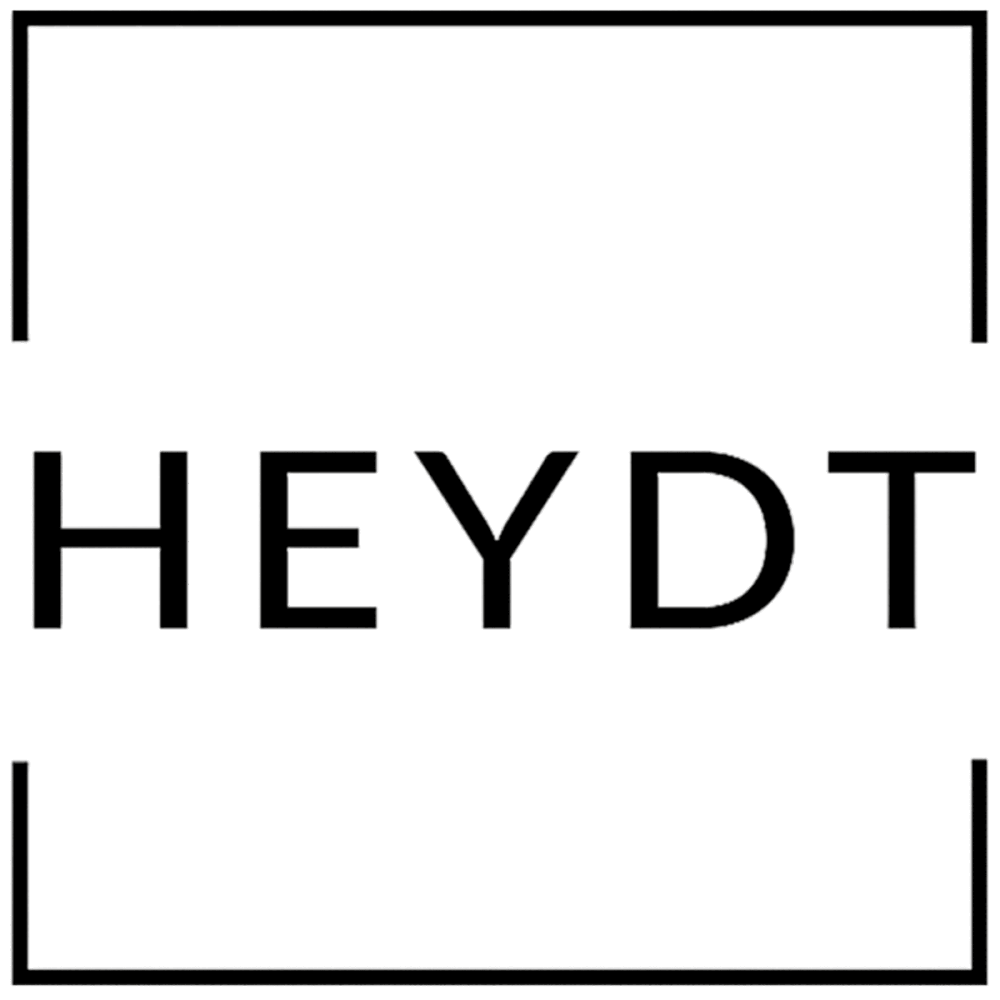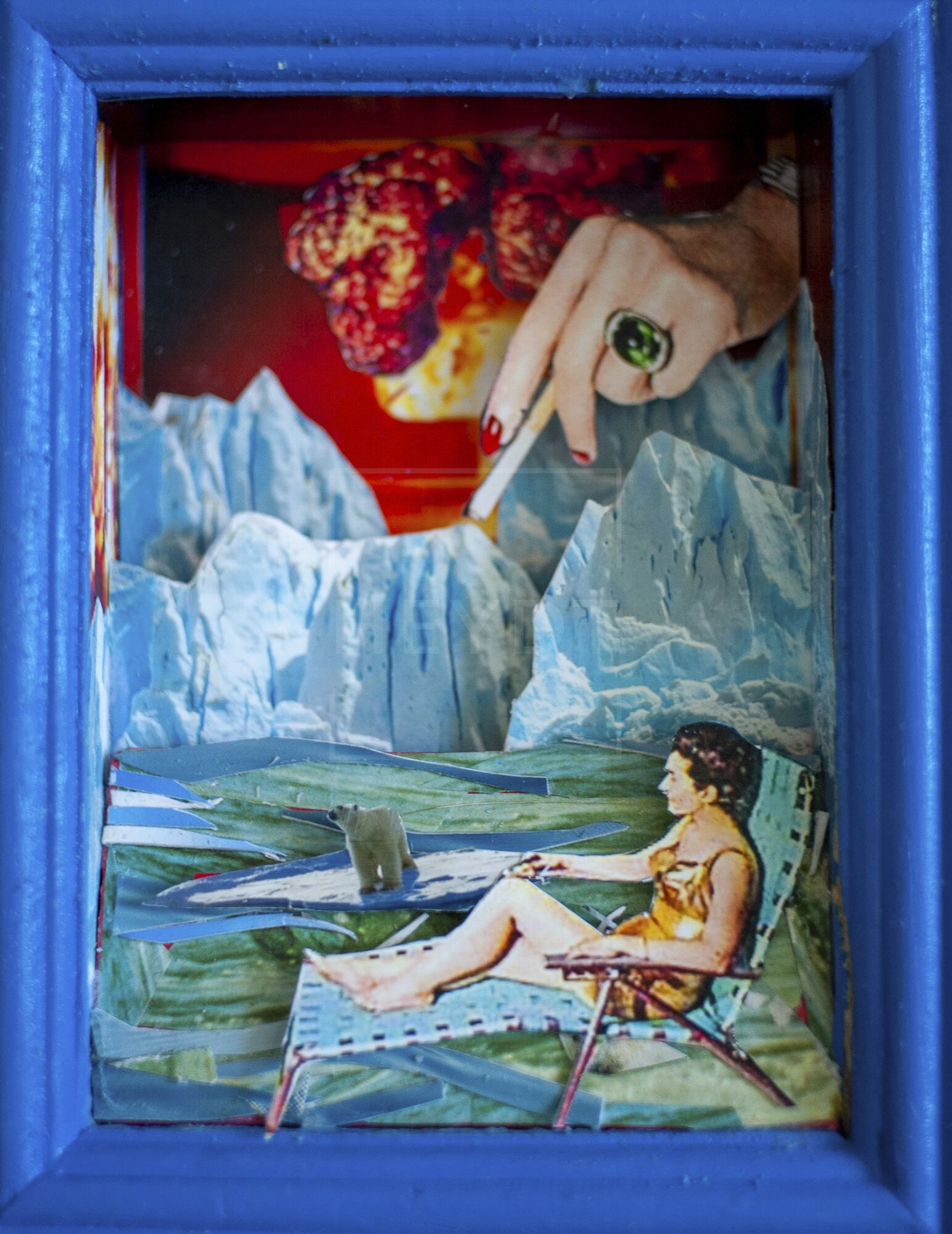
Artificial Stage | HEYDT | 2020 | Mixed Media Diorama | 4in x 6in x 2in | $2000

Capitalism Will Step Over Your Dead Body | HEYDT | 2020 | Found Object Intervention | 30inx30in | $10000.

Capitalism Will Step Over Your Dead Body | HEYDT | 2020 | Found Object Intervention | 28in x 12in x 8in | $5000
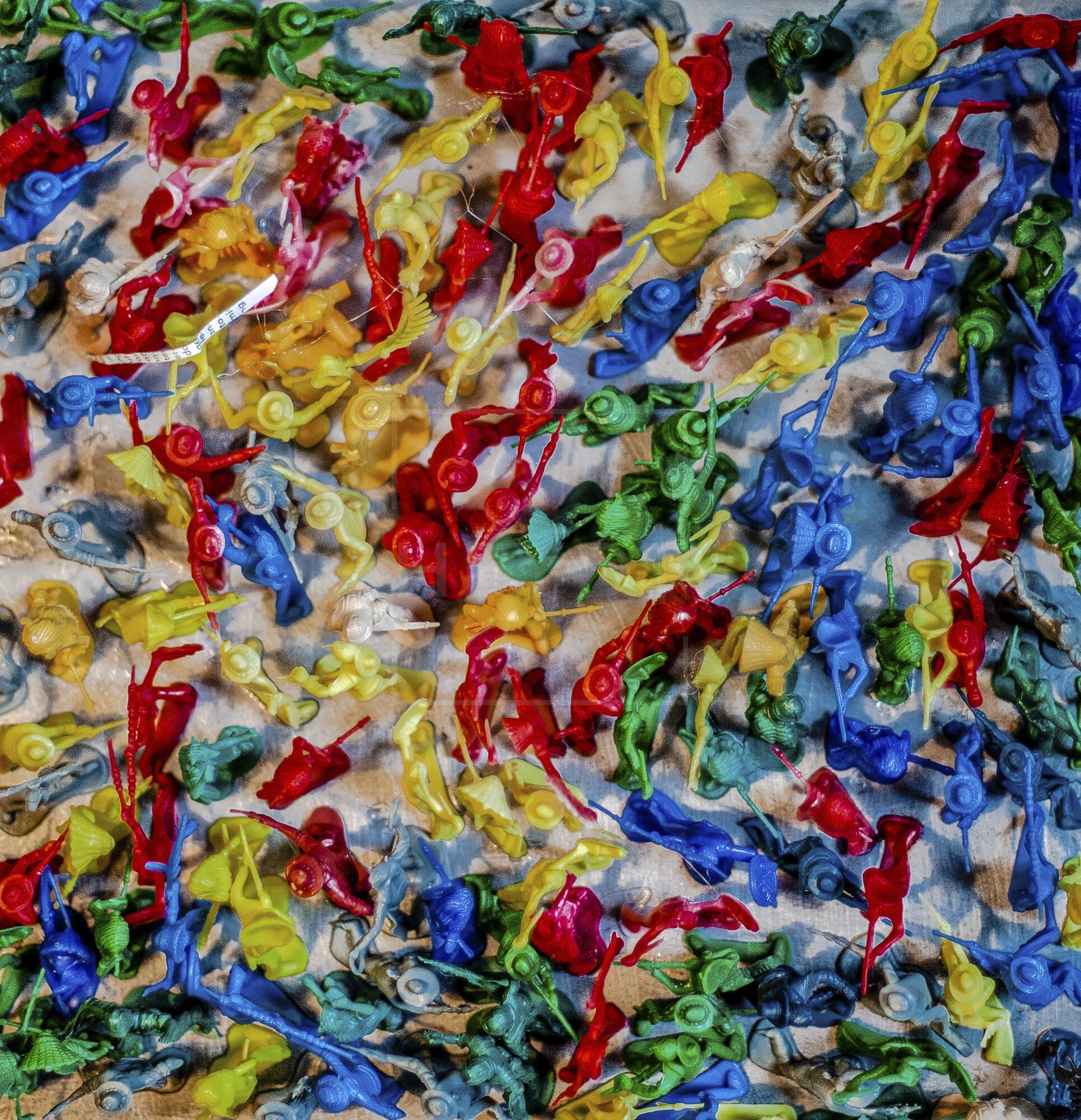
Capitalism Will Step Over Your Dead Body | HEYDT | 2020 | Found Object Intervention | 20in x 20in | $200020in | $2000

Artificial Stage | HEYDT | 2020 | Mixed Media Diorama | 6in x 8in | $2000

Artificial Stage | HEYDT | 2020 | Mixed Media Diorama | 5in. x7in | $1200

Capitalism Will Step Over Your Dead Body | HEYDT | 2020 |Sculpture | 20in x 60in | $10000
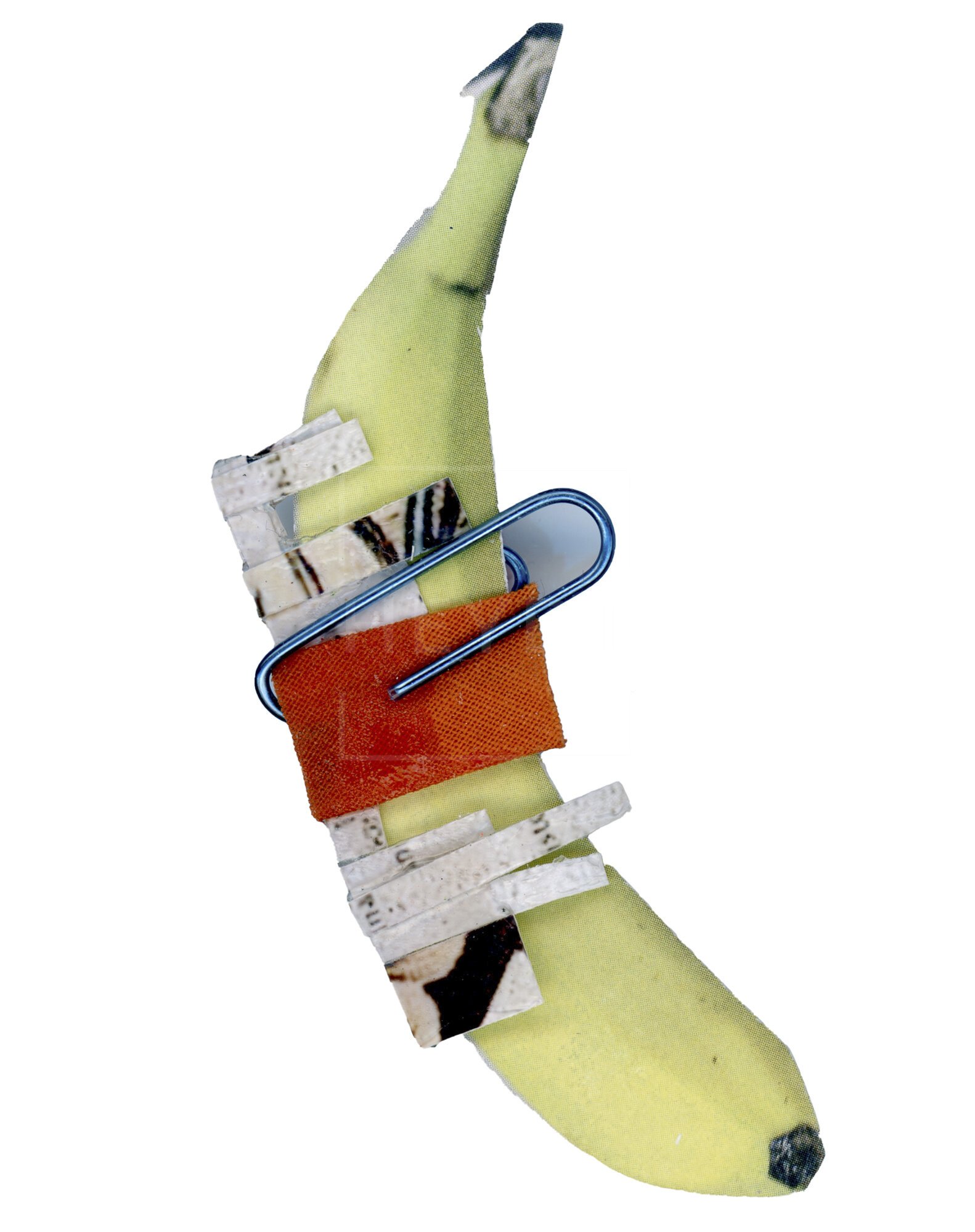
Capitalism Will Step Over Your Dead Body | HEYDT | 2020 | Sculptural Installtion | 20in x 50in x 2in | $10,000
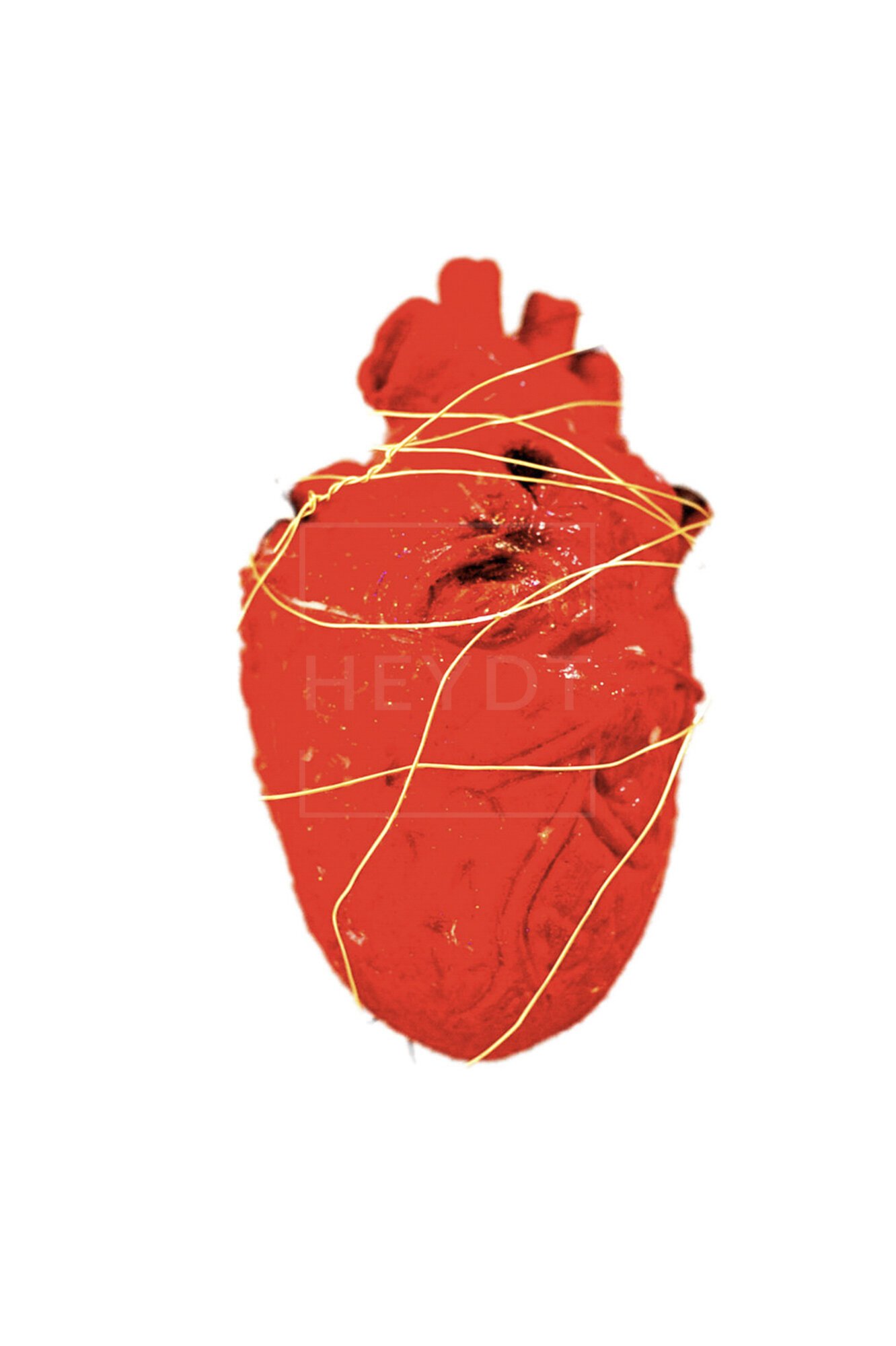
Capitalism Will Step Over Your Dead Body | HEYDT | 2020 | Found Object Intervention | 3in x 5in x 2in | $120

Capitalism Will Step Over Your Dead Body | HEYDT | 2020 |Sculptural Installation | 30in x 20in x 5in | $12000

Artificial Stage | HEYDT | 2020 | Mixed Media Diorama | 8in x 12in x 3in | $6000

Artificial Stage | HEYDT | 2020 | Mixed Media Diorama | 6in x 8in x 4in | $2000
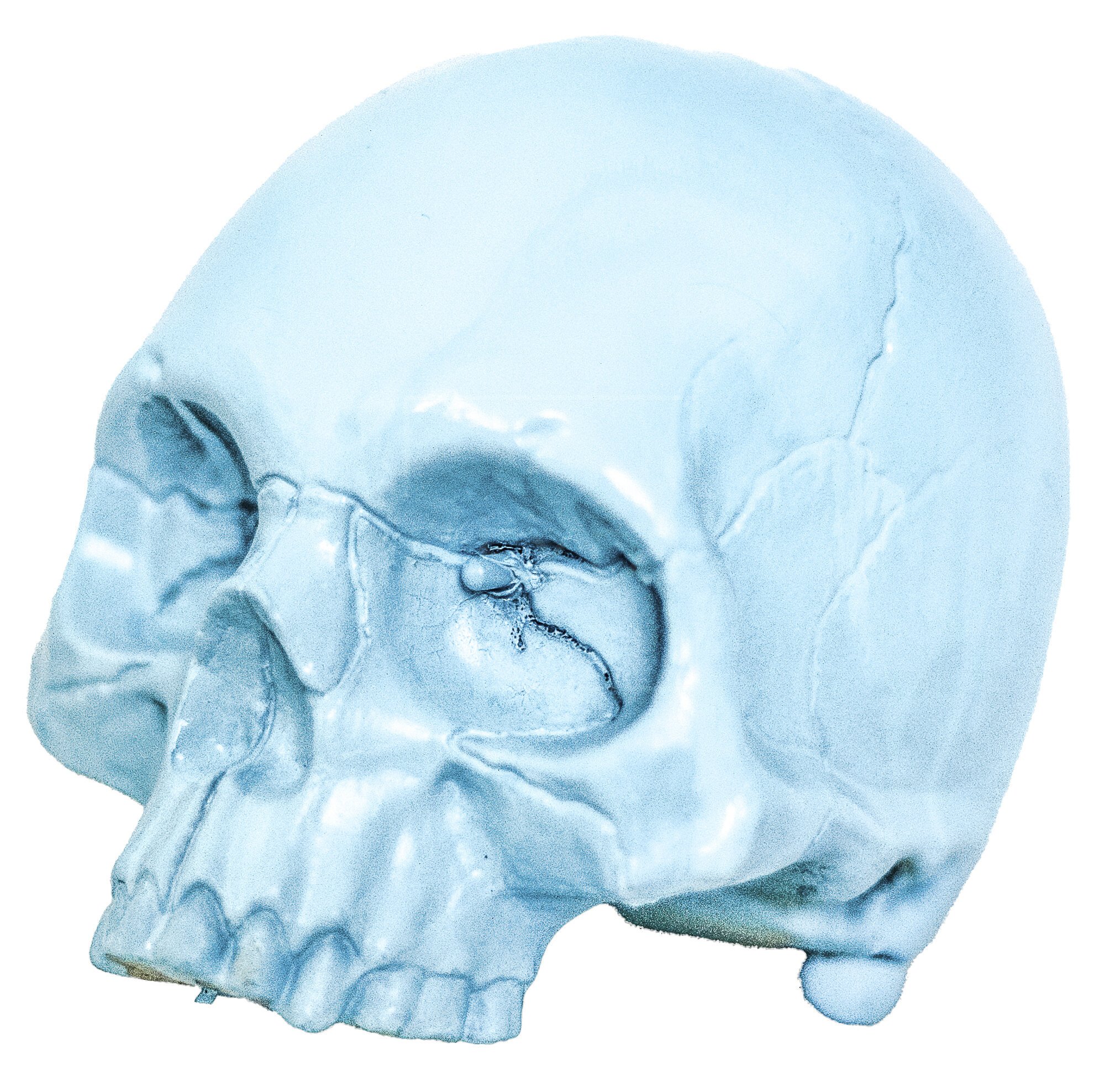
Capitalism Will Step Over Your Dead Body | HEYDT | 2020 | Sculpture | 6in x 6in x 6in | $600
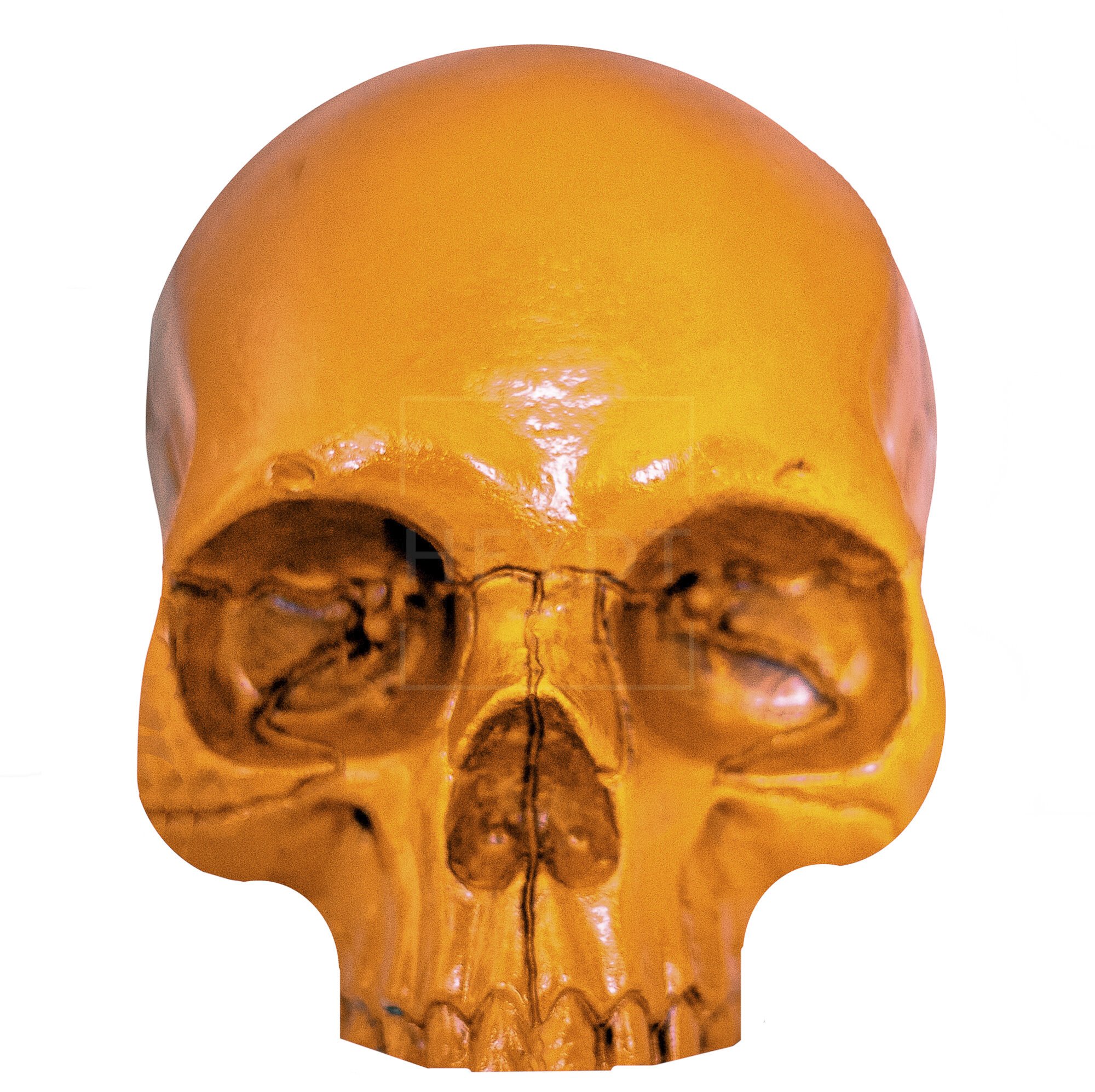
Capitalism Will Step Over Your Dead Body | HEYDT | 2020 | Sculpture | 6in x 6in x 6in | $600
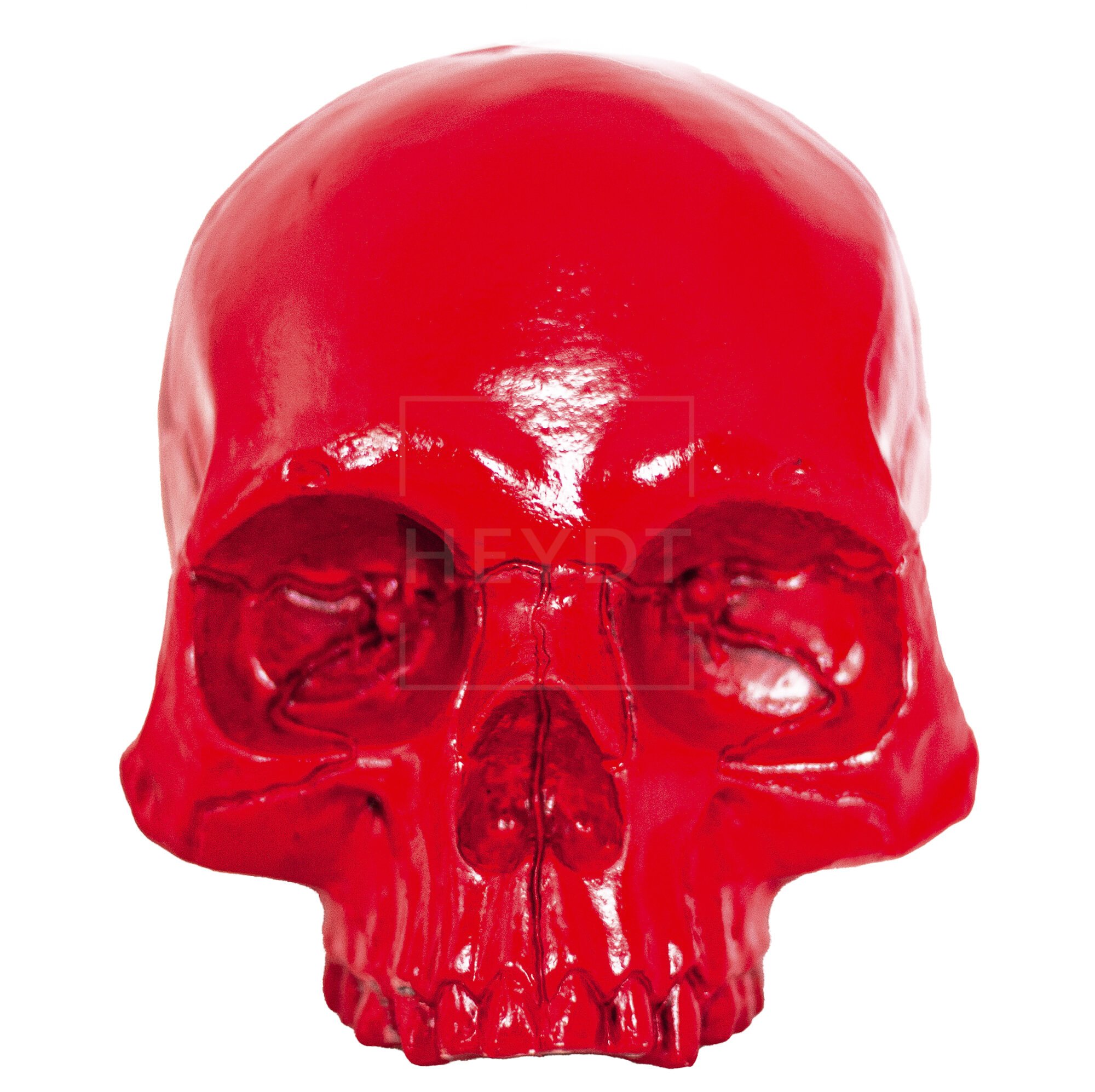
Capitalism Will Step Over Your Dead Body | HEYDT | 2020 | Sculpture | 6in x 6in x 6in | $600
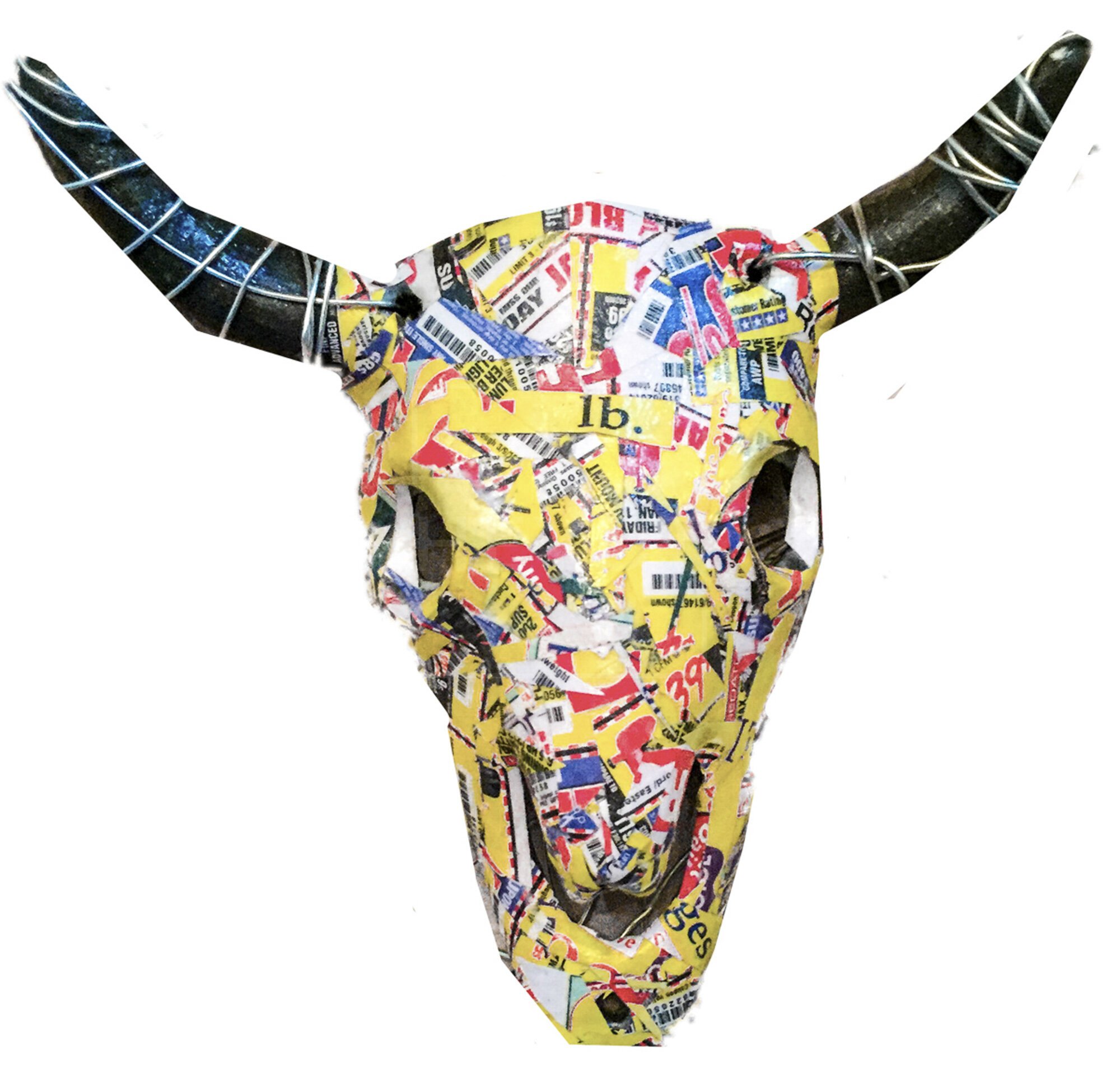
Capitalism Will Step Over Your Dead Body | HEYDT | 2020 | Decoupaged Cast Bronze Sculpture | 7in x 7in x 2in | $3000
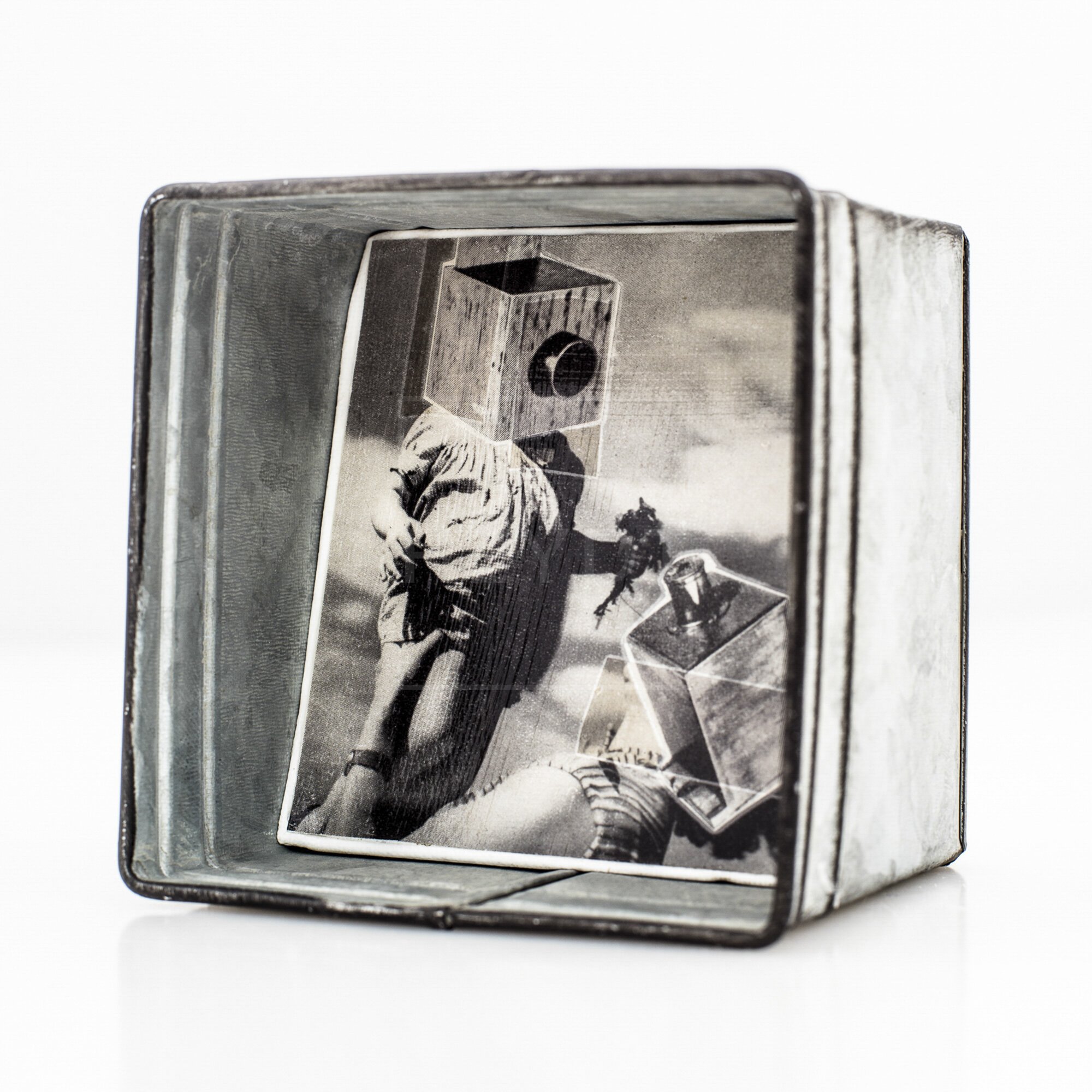
Artificial Stage | HEYDT | 2020 | Mixed Media Diorama | 4in x 4in x 4in | $1000

Artificial Stage | HEYDT | 2020 | Mixed Media Diorama |10in x 7in | $2000
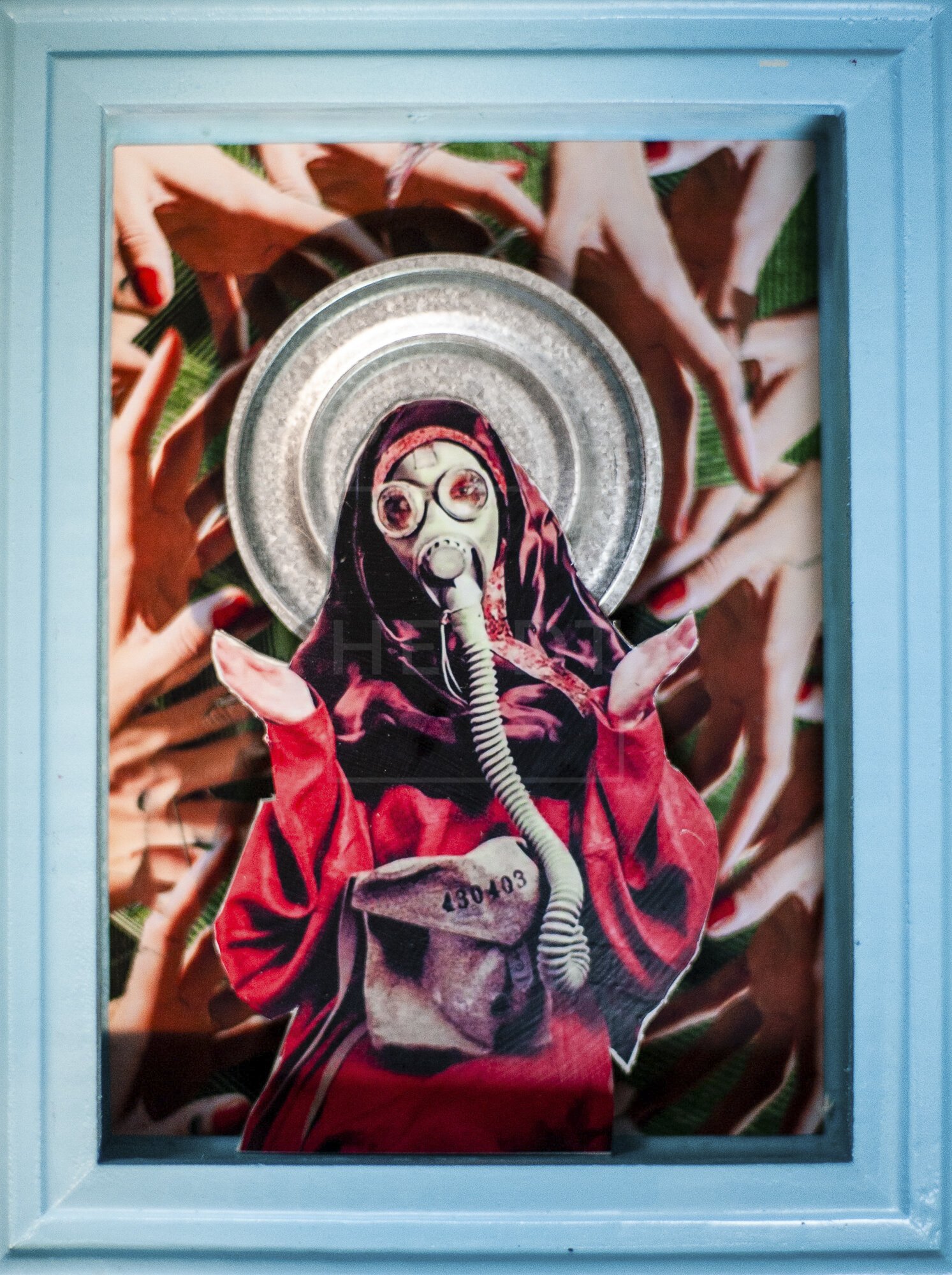
Artificial Stage | HEYDT | 2020 | Mixed Media Diorama | 4in x 6in x 2in | $2000

Artificial Stage | HEYDT | 2020 | Mixed Media Diorama | 4in x 6in x 2in | $2000
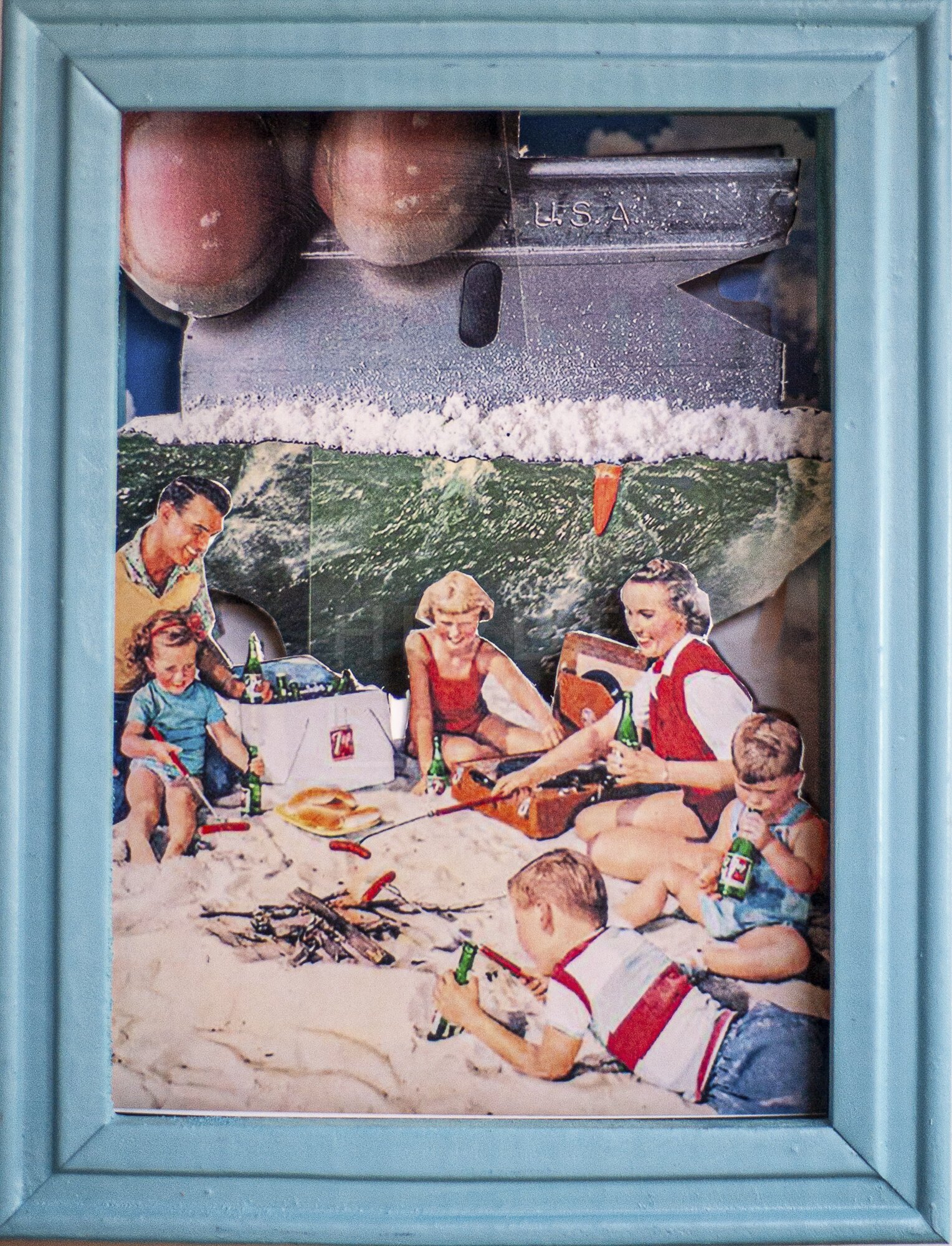
Artificial Stage | HEYDT | 2020 | Mixed Media Diorama | 4in x 6in x 2in | $2000

Artificial Stage | HEYDT | 2020 | Mixed Media Diorama | 6in x 8in | $2000
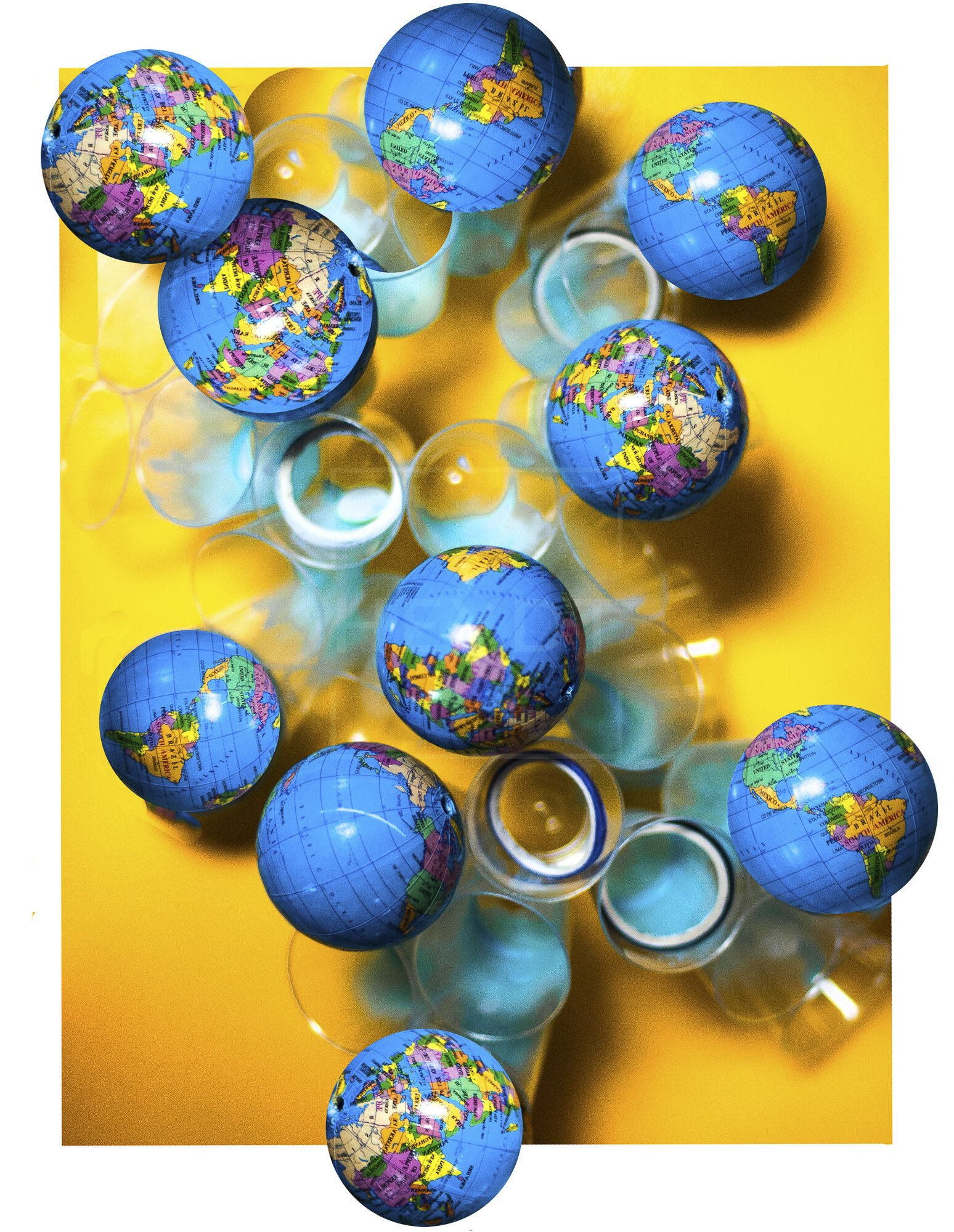
Capitalism Will Step Over Your Dead Body | HEYDT | 2020 | Small Globes on Painted Panel | 11in x 14in | $5000

Artificial Stage | HEYDT | 2020 | Mixed Media Diorama | 15in x 15in x 3in | $2500

Capitalism Will Step Over Your Dead Body | HEYDT | 2020 | Sculpture | 27in x 41in x 15in | $5000

Artificial Stage | HEYDT | 2020 | Mixed Media Diorama | 4in x 6in x 2in | $2000

Artificial Stage | HEYDT | 2020 | Mixed Media Diorama | 8in x 10in x 5in | $5000
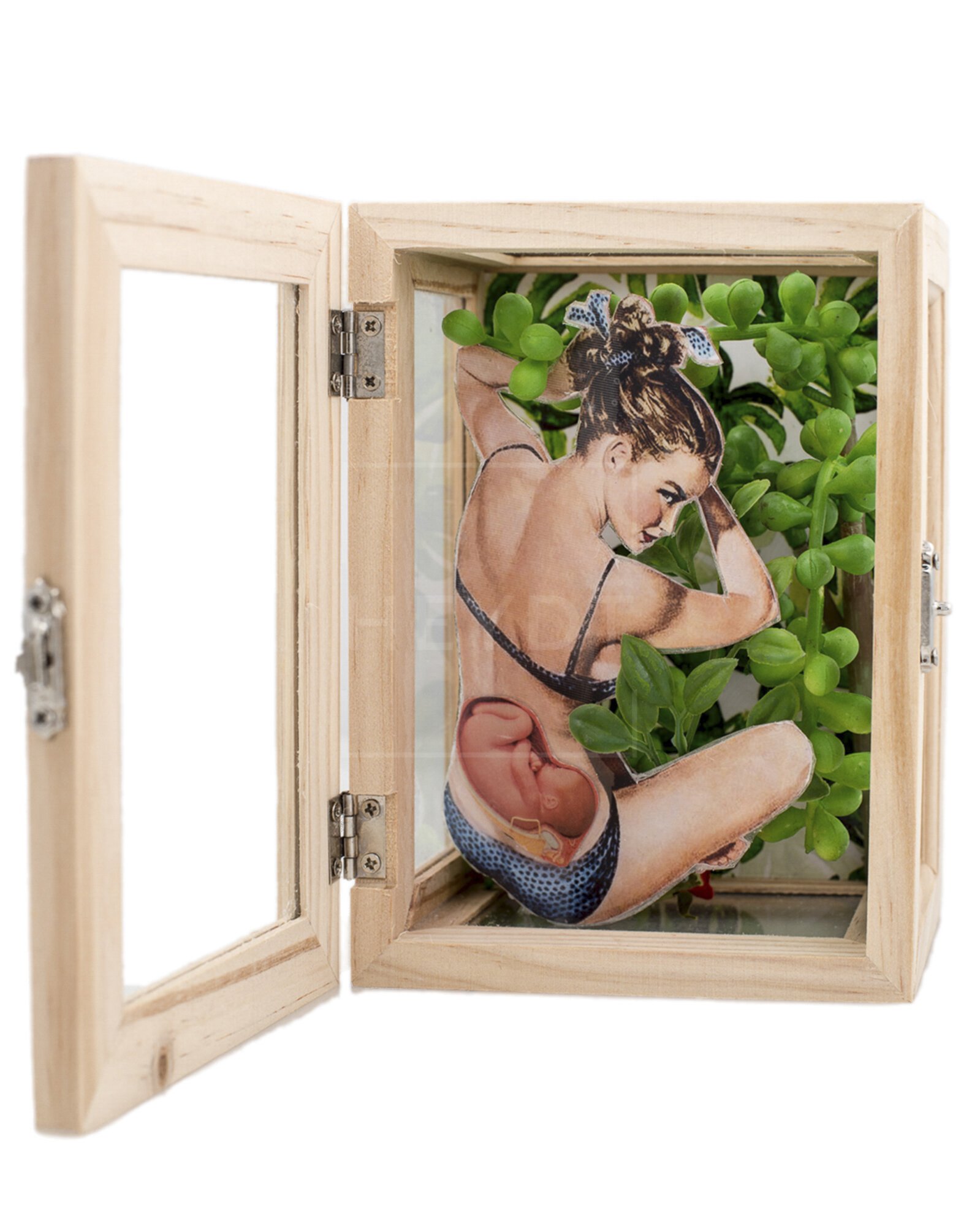
Artificial Stage | HEYDT | 2020 | Mixed Media Diorama | 4in x 6in x 5in | $2000

Capitalism Will Step Over Your Dead Body | HEYDT | 2020 | Recycled Media Work | 50in x 30in | $6000
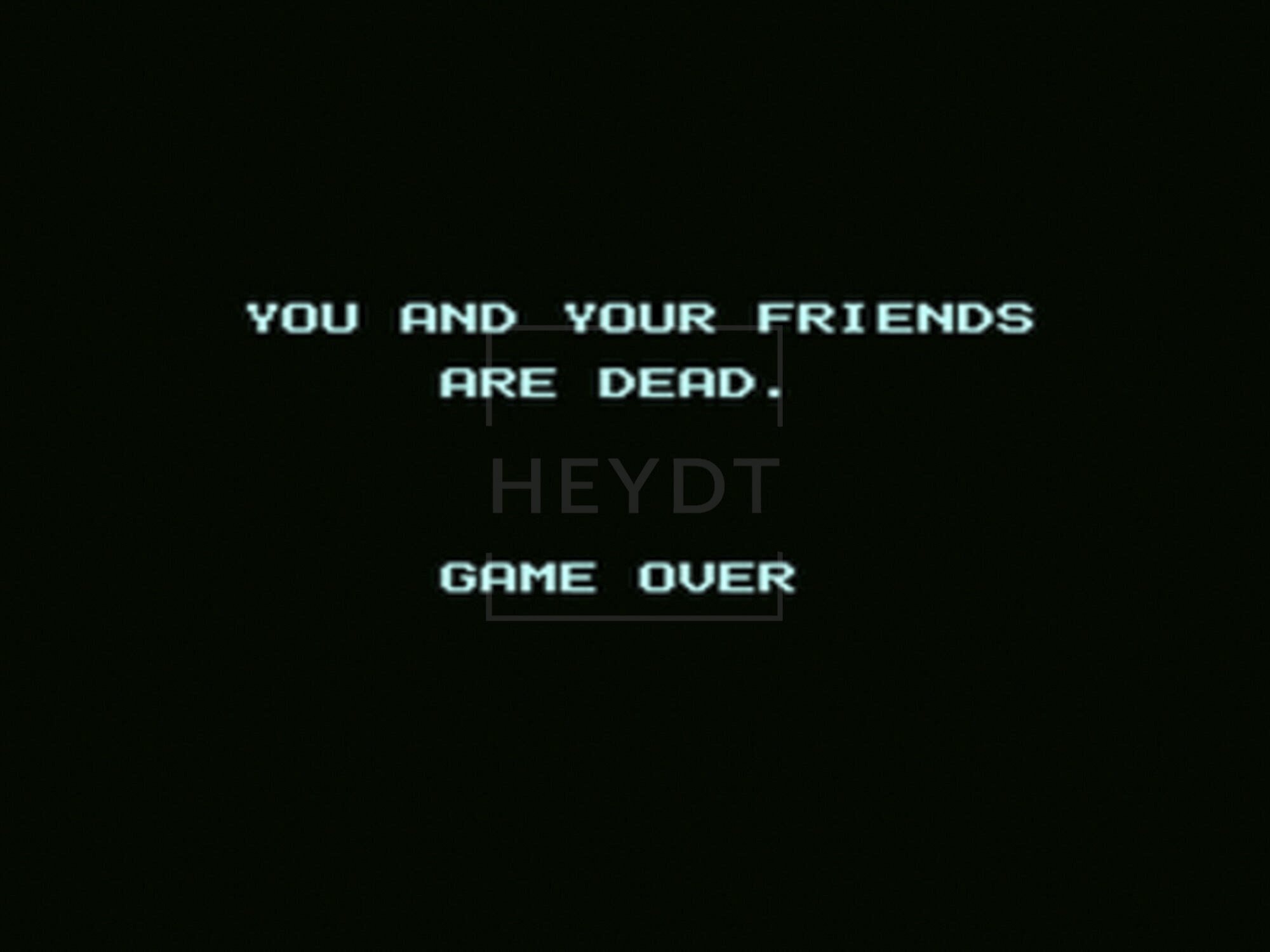
Capitalism Will Step Over Your Dead Body | HEYDT | 2020 | Video Game Text on Canvas | 50in x 40in x 3in | $8000
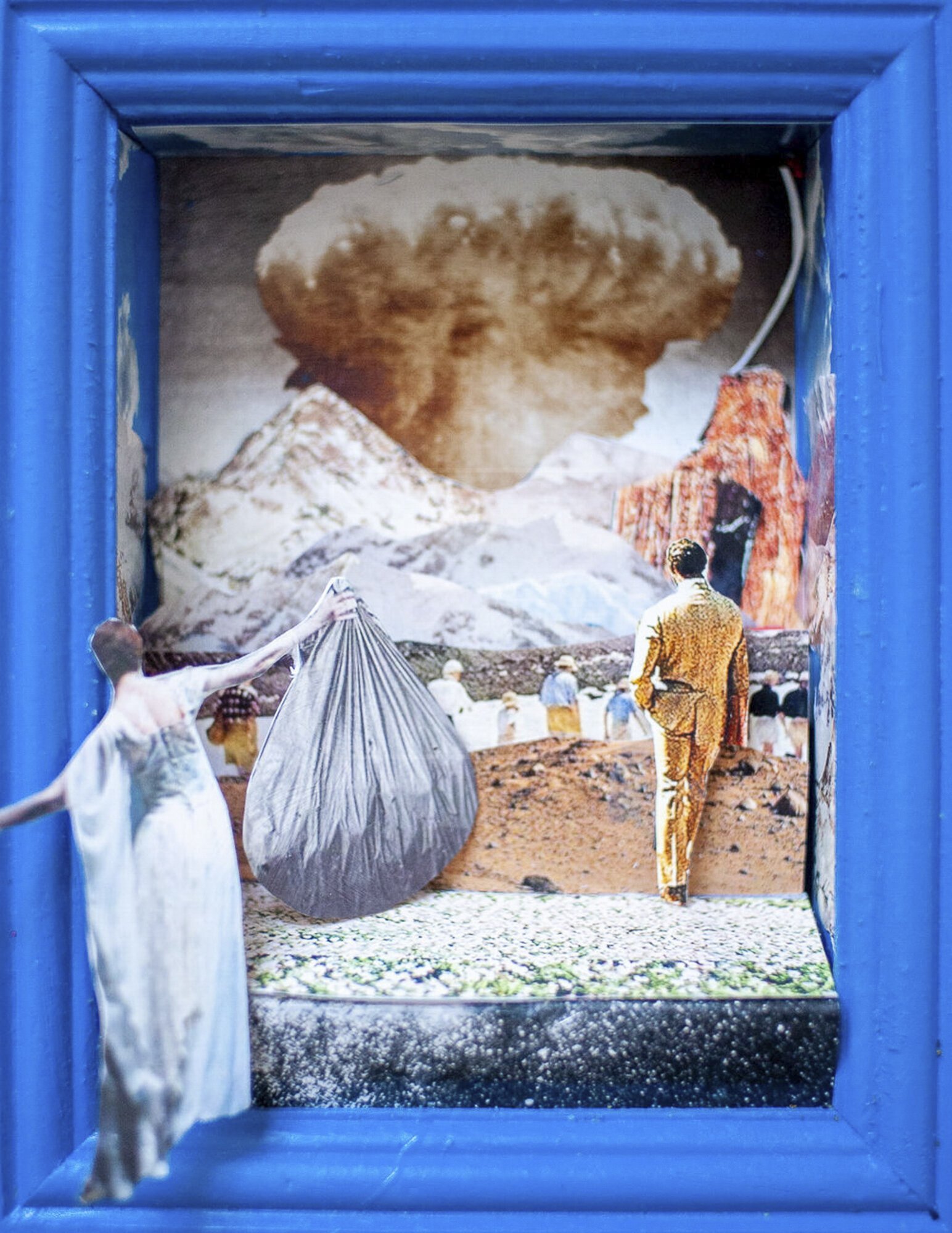
Artificial Stage | HEYDT | 2020 | Mixed Media Diorama | 4in x 6in x 2in | $2000

Capitalism Will Step Over Your Dead Body | HEYDT | 2020 | Found Object Intervention With Video Installation Inside | 6in x 12in x 5in | $5000

Artificial Stage | HEYDT | 2020 | Mixed Media Diorama | 4in x 6in x 2in | $2000

Capitalism Will Step Over Your Dead Body | HEYDT | 2020 | Found Object Intervention | 7in x 11in x 2in | $3600
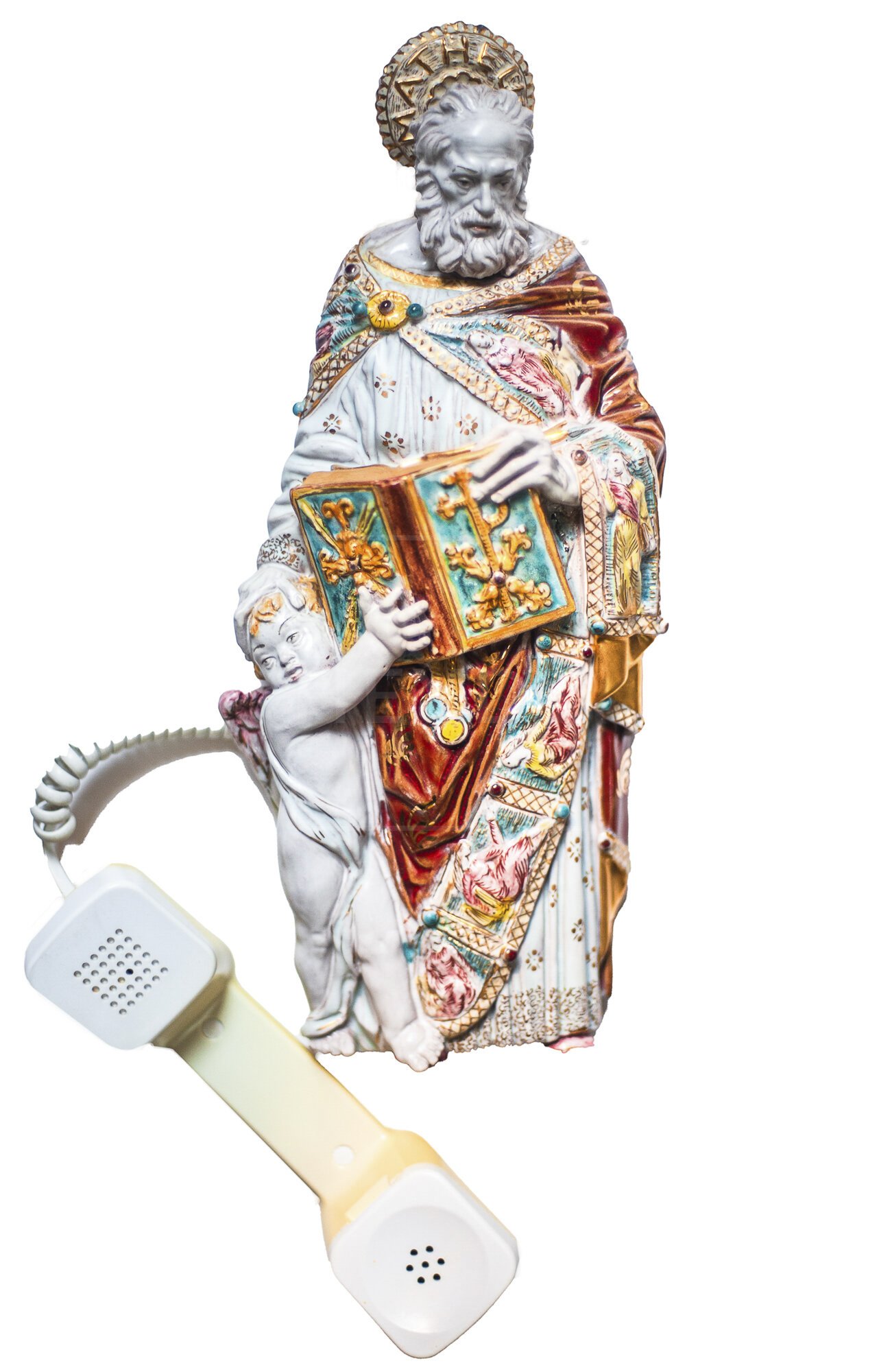
Capitalism Will Step Over Your Dead Body | HEYDT | 2020 |Hand Painted Porcelain Sculpture With Audio Of Hymms Paired With Sexual Abuse Allegations Against Catholic Church | 7in x 14in x 3in | $10000

Capitalism Will Step Over Your Dead Body | HEYDT | 2020 | Sculpture |9in x 12in x 9in | $1200

Capitalism Will Step Over Your Dead Body | HEYDT | 2020 | Decollage Intervention | 40inx50in | $10000
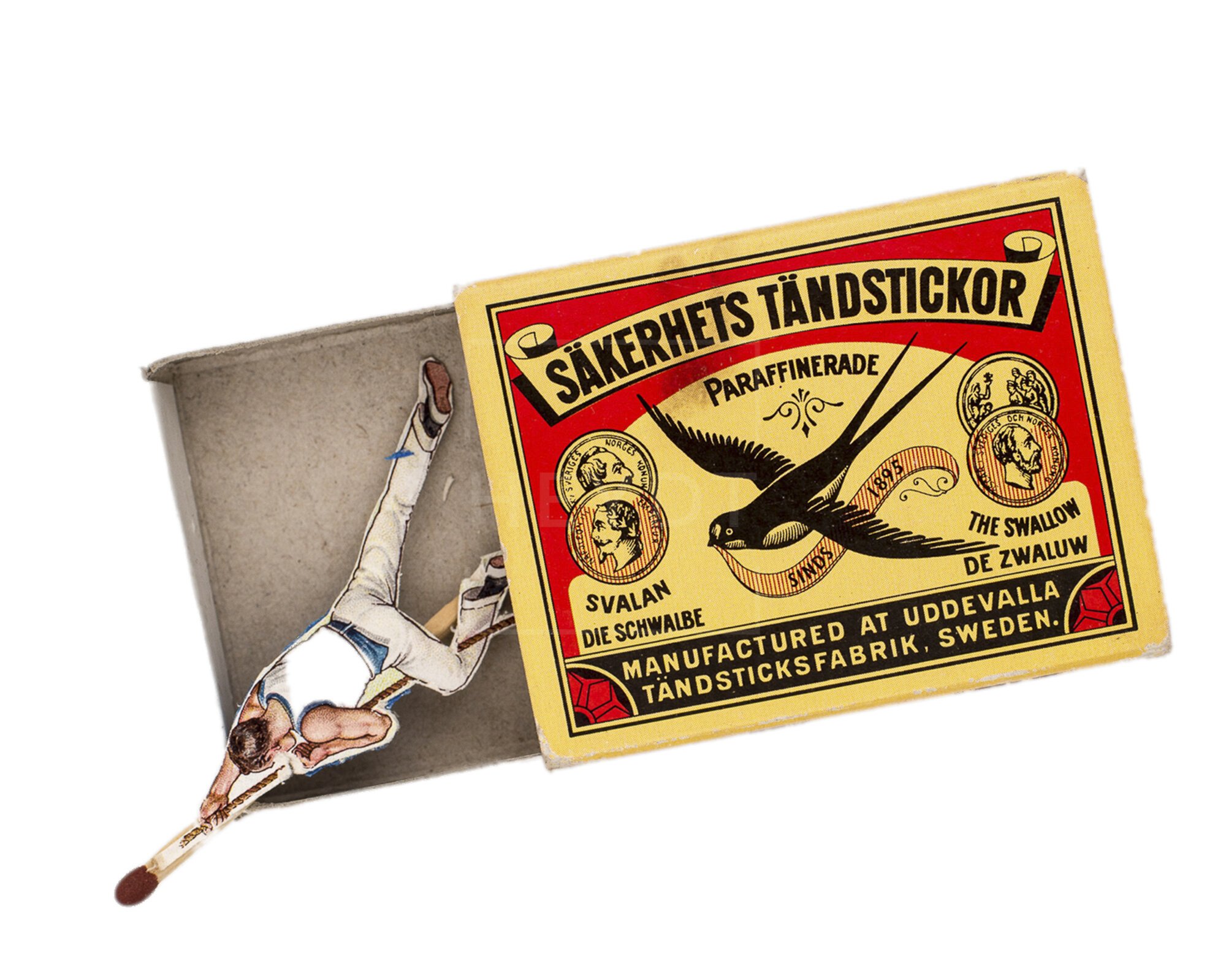
Capitalism Will Step Over Your Dead Body | HEYDT | 2020 | Sculptural Installation | 50in x 30in x 15in | $10,000

Artificial Stage | HEYDT | 2020 | Mixed Media Diorama | 4in x 4in x 4in | $1000
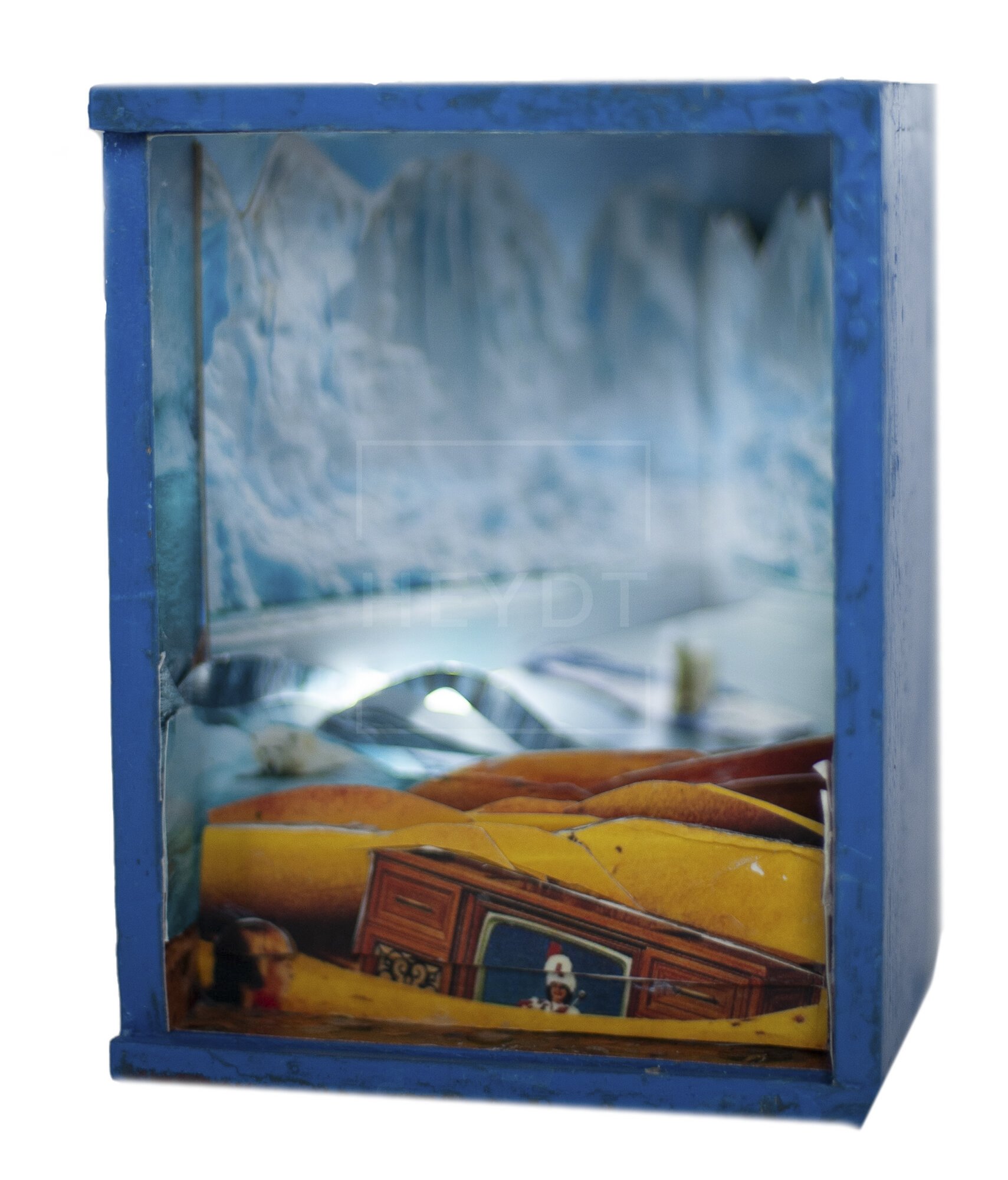
Artificial Stage | HEYDT | 2020 | Mixed Media Diorama | 4in x 5in x 5in | $1500
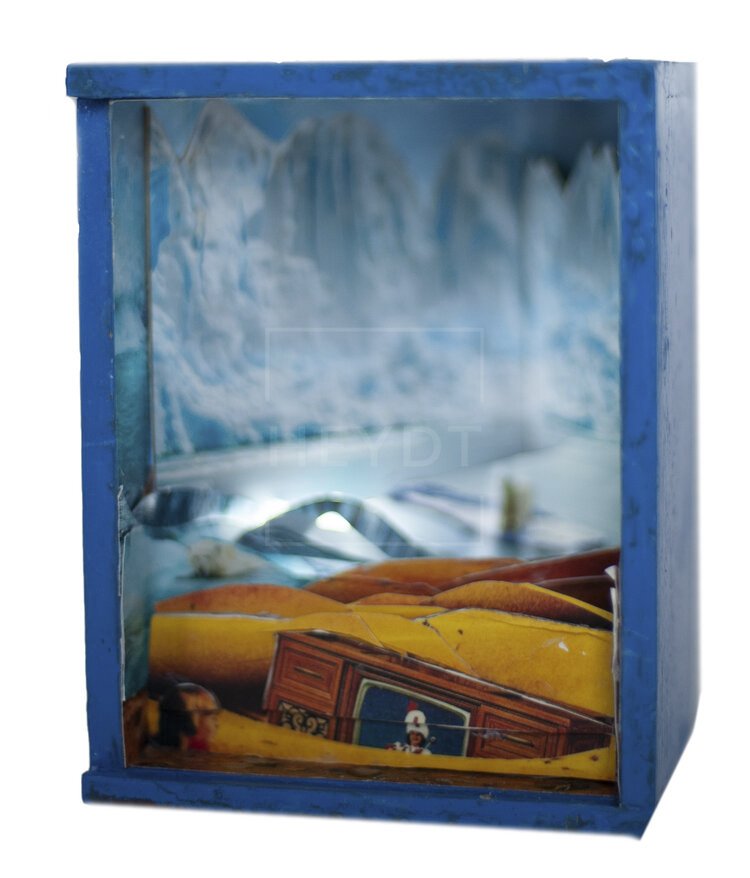
Artificial Stage | HEYDT | 2020 | Mixed Media Diorama | 4in x 5in x 5in | $1500

Artificial Stage | HEYDT | 2020 | Mixed Media Diorama | 4in x 5in x 5in | $1500
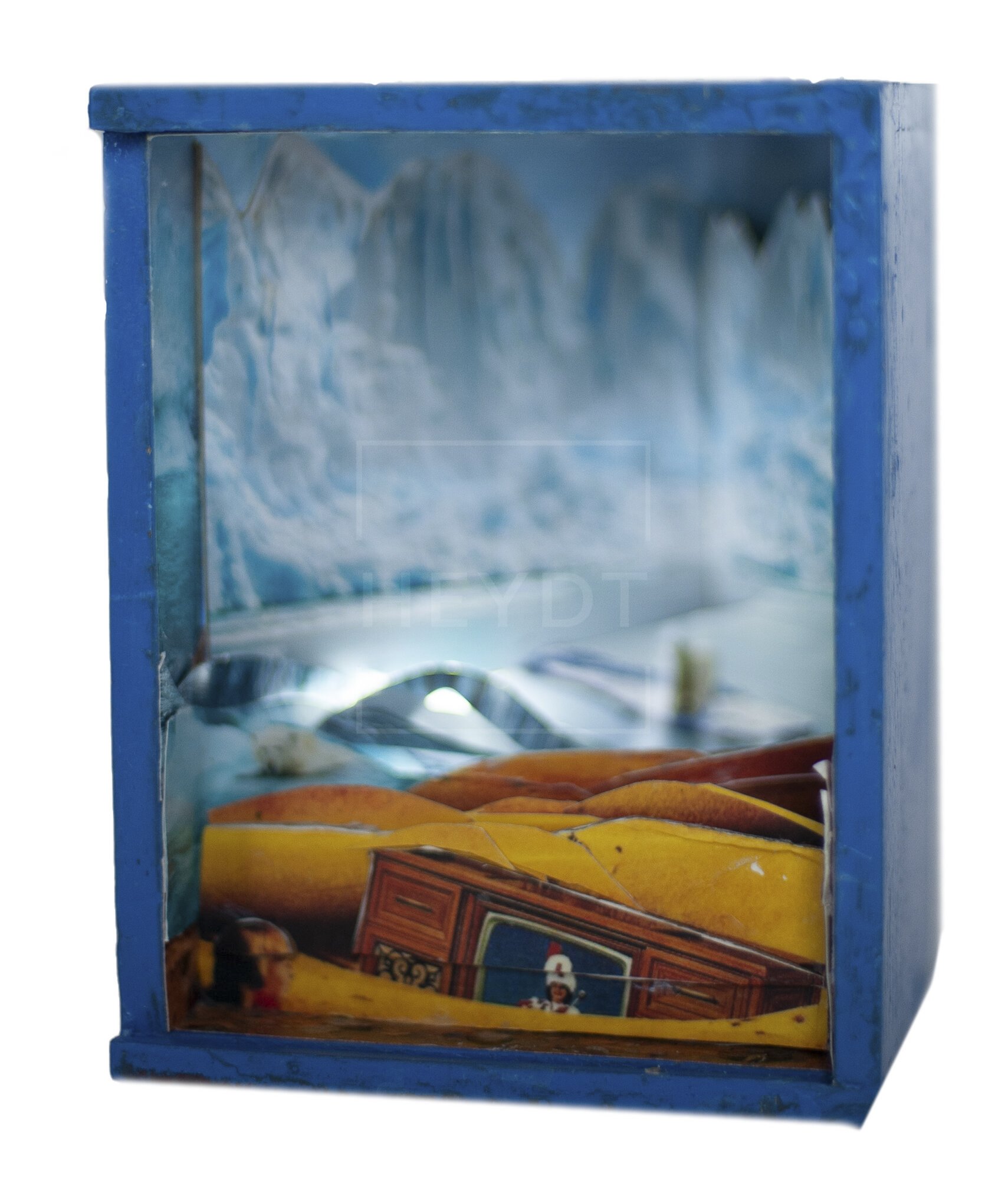
Artificial Stage | HEYDT | 2020 | Mixed Media Diorama | 4in x 5in x 5in | $1500

Artificial Stage | HEYDT | 2020 | Mixed Media Diorama | 4in x 5in x 5in | $1500
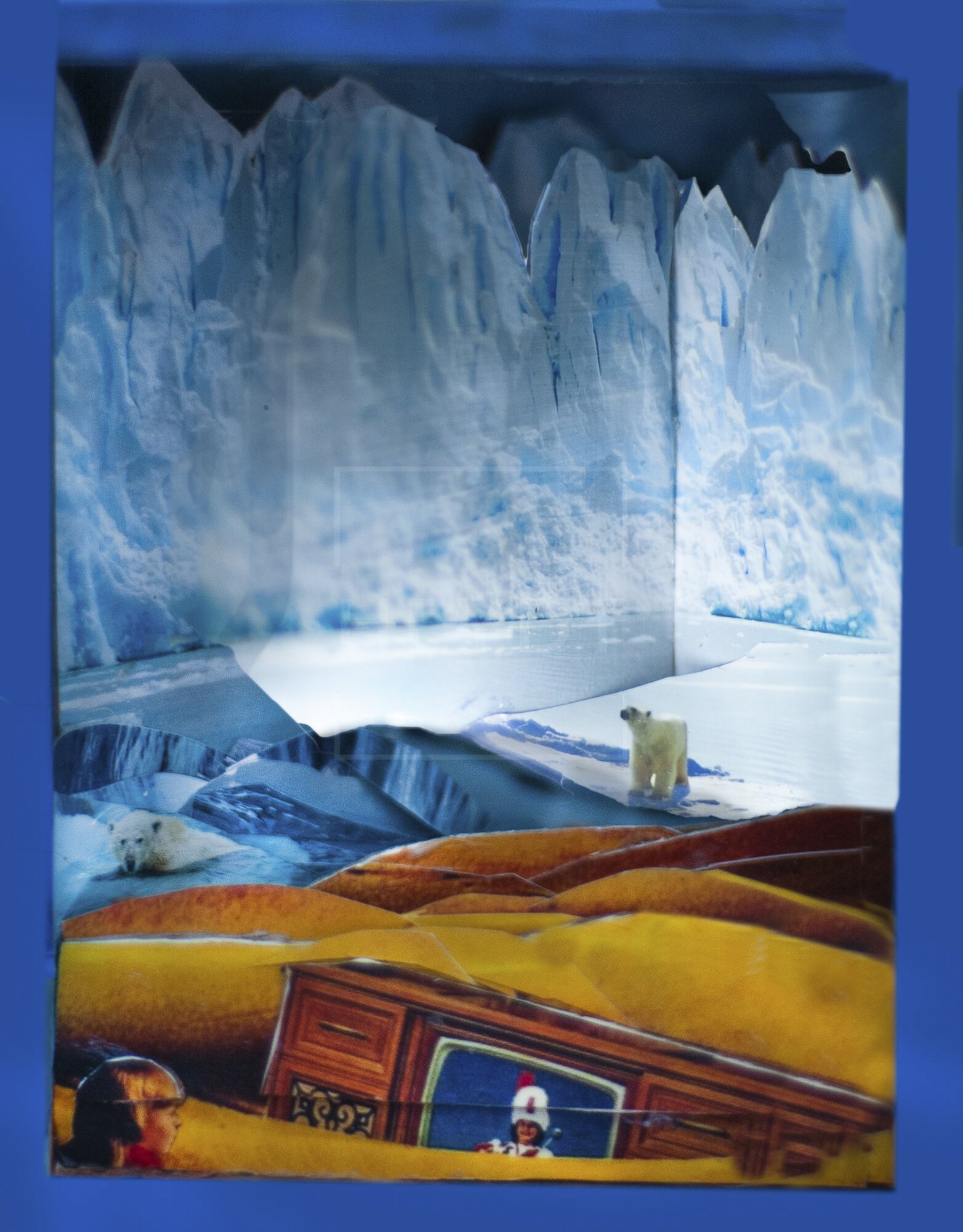
Artificial Stage | HEYDT | 2020 | Mixed Media Diorama | 4in x 5in x 5in | $1500

Artificial Stage | HEYDT | 2020 | Mixed Media Diorama | 4in x 4in x 4in | $1000
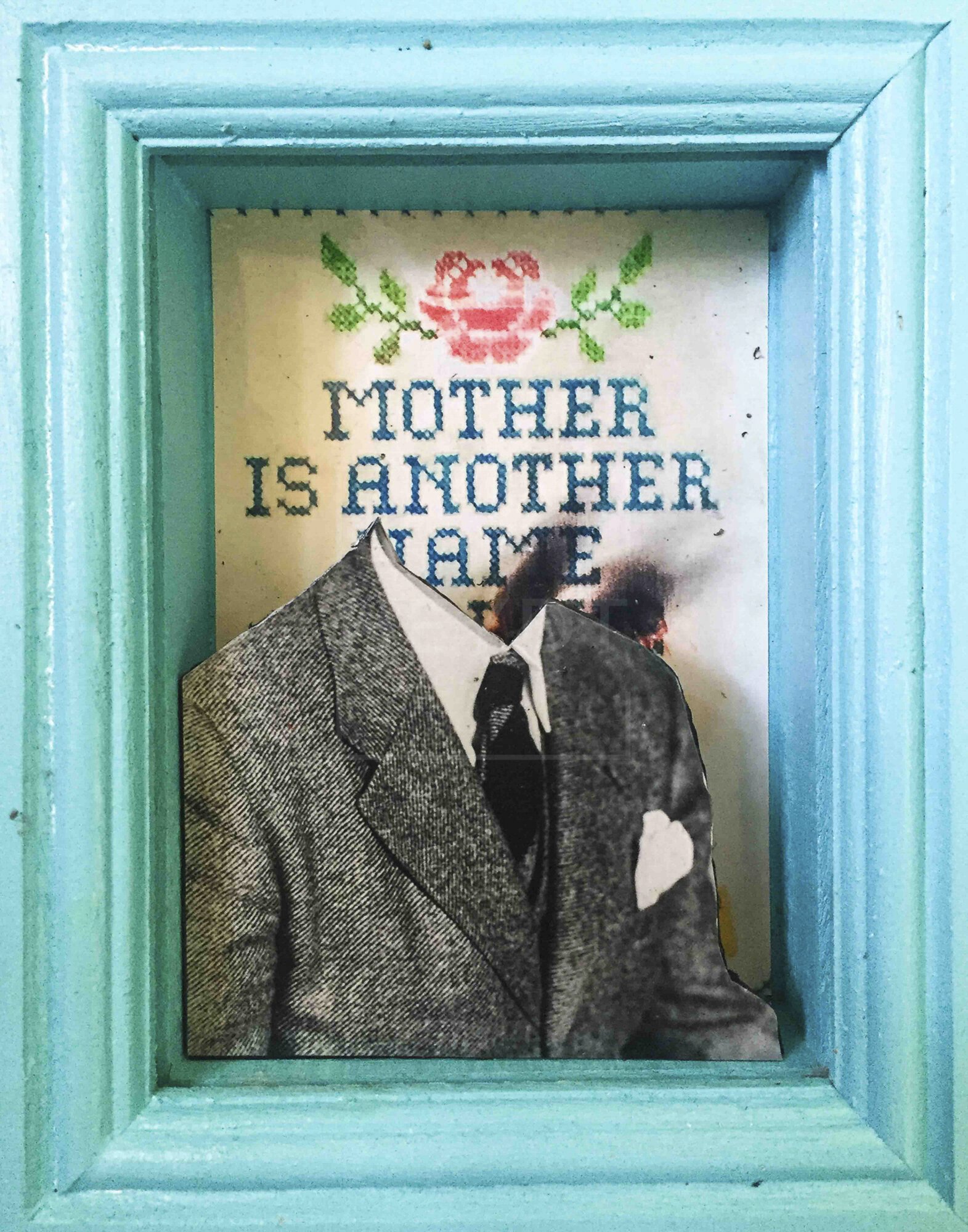
Artificial Stage | HEYDT | 2020 | Mixed Media Diorama | 4in x 6in x 2in | $2000
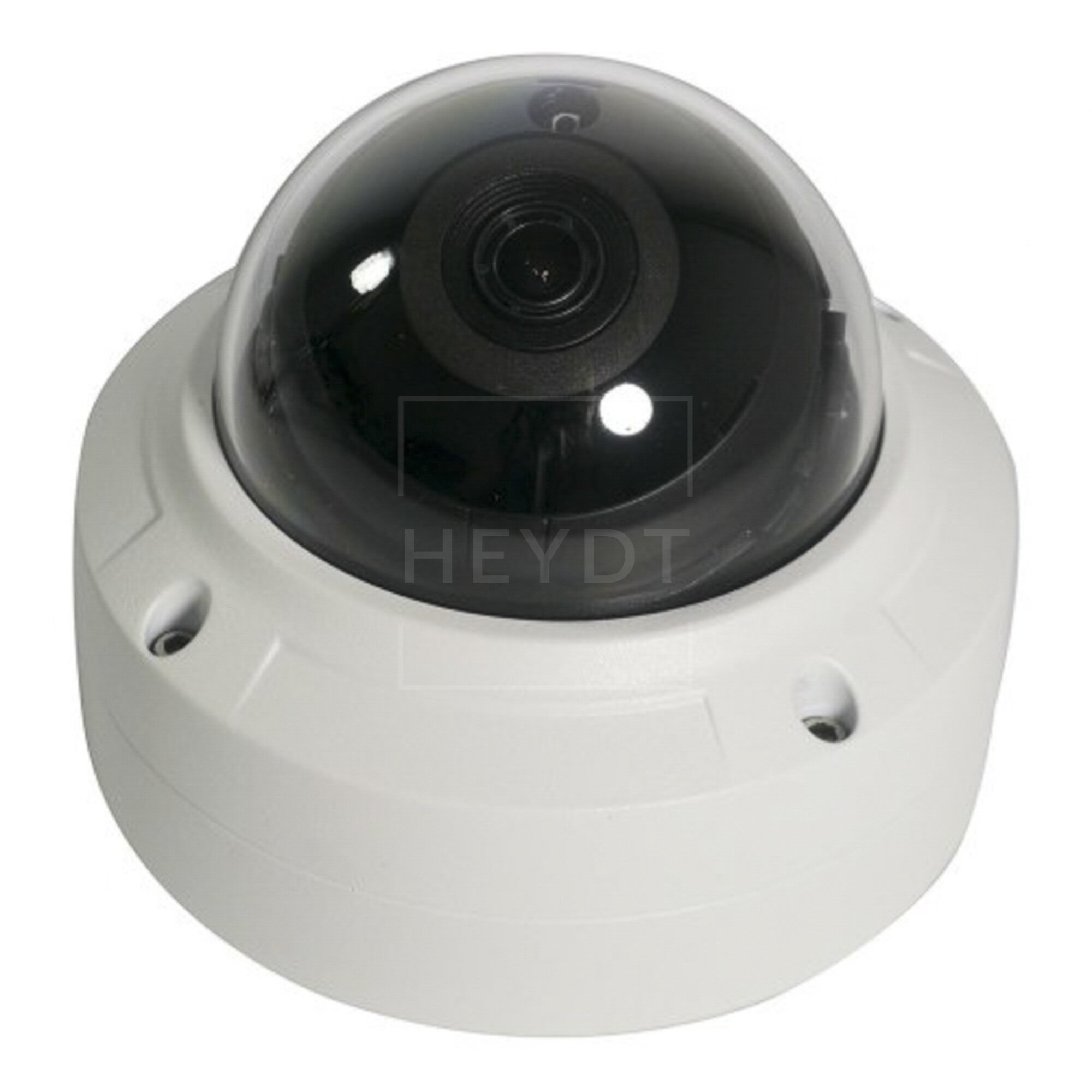
Capitalism Will Step Over Your Dead Body | HEYDT | 2020 | Found Object Intervention | 4in x 4in x 4in | $100

Artificial Stage | HEYDT | 2020 | Mixed Media Diorama | 12in x 15in x 3in | $3000

Artificial Stage | HEYDT | 2020 | Mixed Media Diorama | 12in x 15in x 3in | $3000

Artificial Stage | HEYDT | 2020 | Mixed Media Diorama | 4in x 6in x 2in | $2000
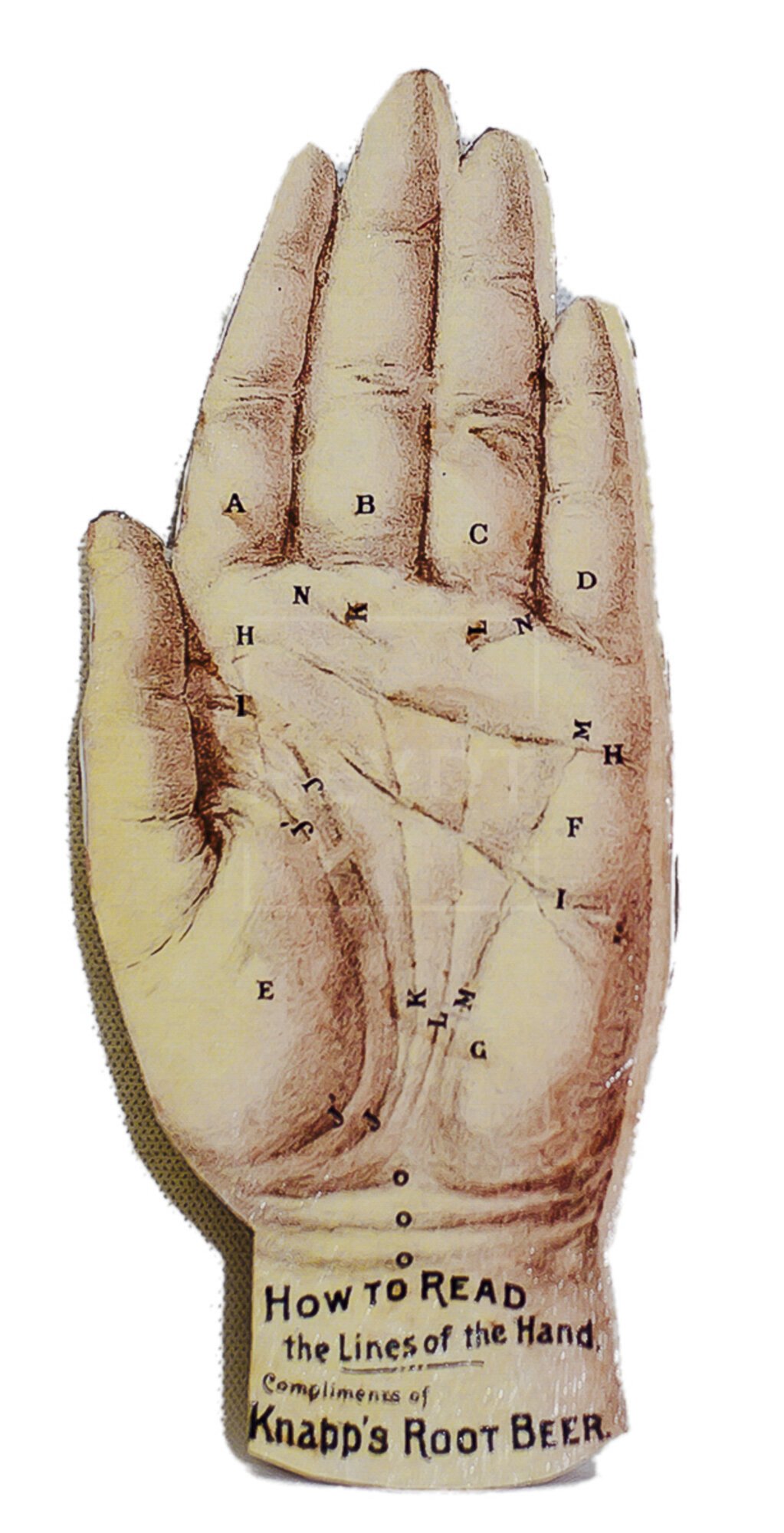
Capitalism Will Step Over Your Dead Body | HEYDT | 2020 | Sculpture | 25in x 50in x 3in | $8000
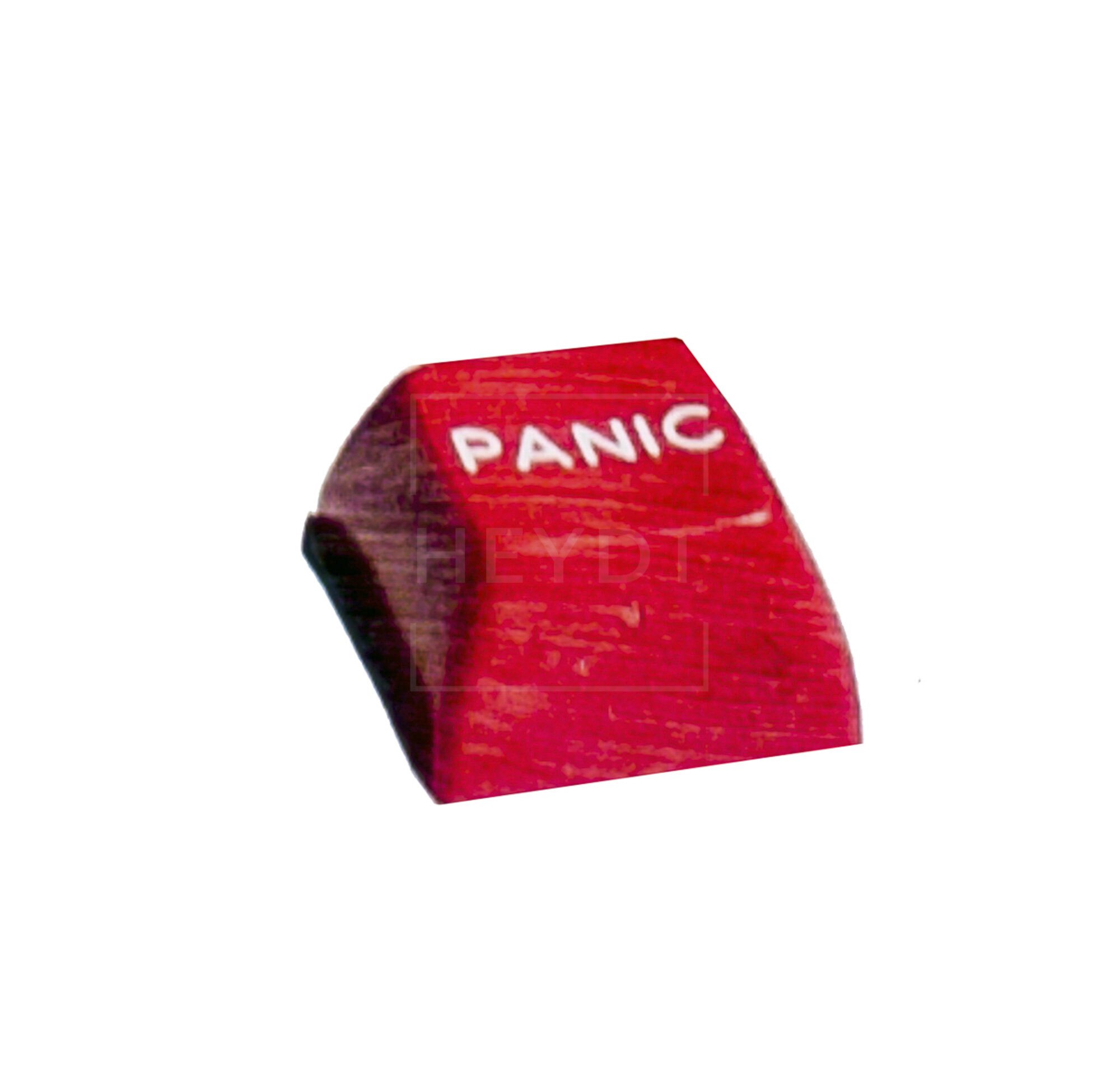
Capitalism Will Step Over Your Dead Body | HEYDT | 2020 | Found Object Intervention | Sculpture | 5in x 5in x 5in | $3000

Artificial Stage | HEYDT | 2020 | Mixed Media Diorama | 4in x 6in x 2in | $2000

Capitalism Will Step Over Your Dead Body | HEYDT | 2020 | Found Object Intervention | 8in x 12in x 3in | $25000
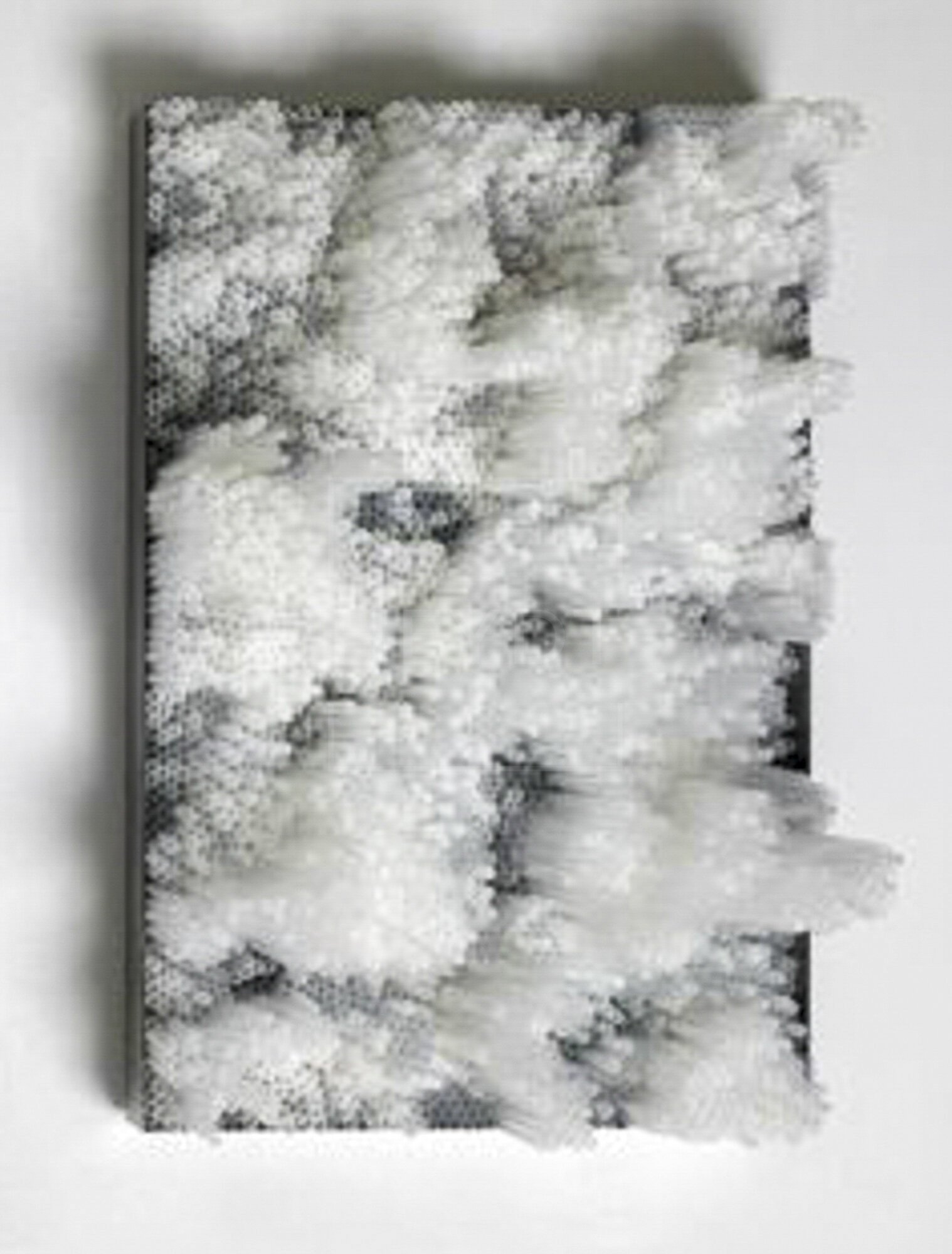
Capitalism Will Step Over Your Dead Body | HEYDT | 2020 | Found Object Intervention | 37in x 50in | $10000
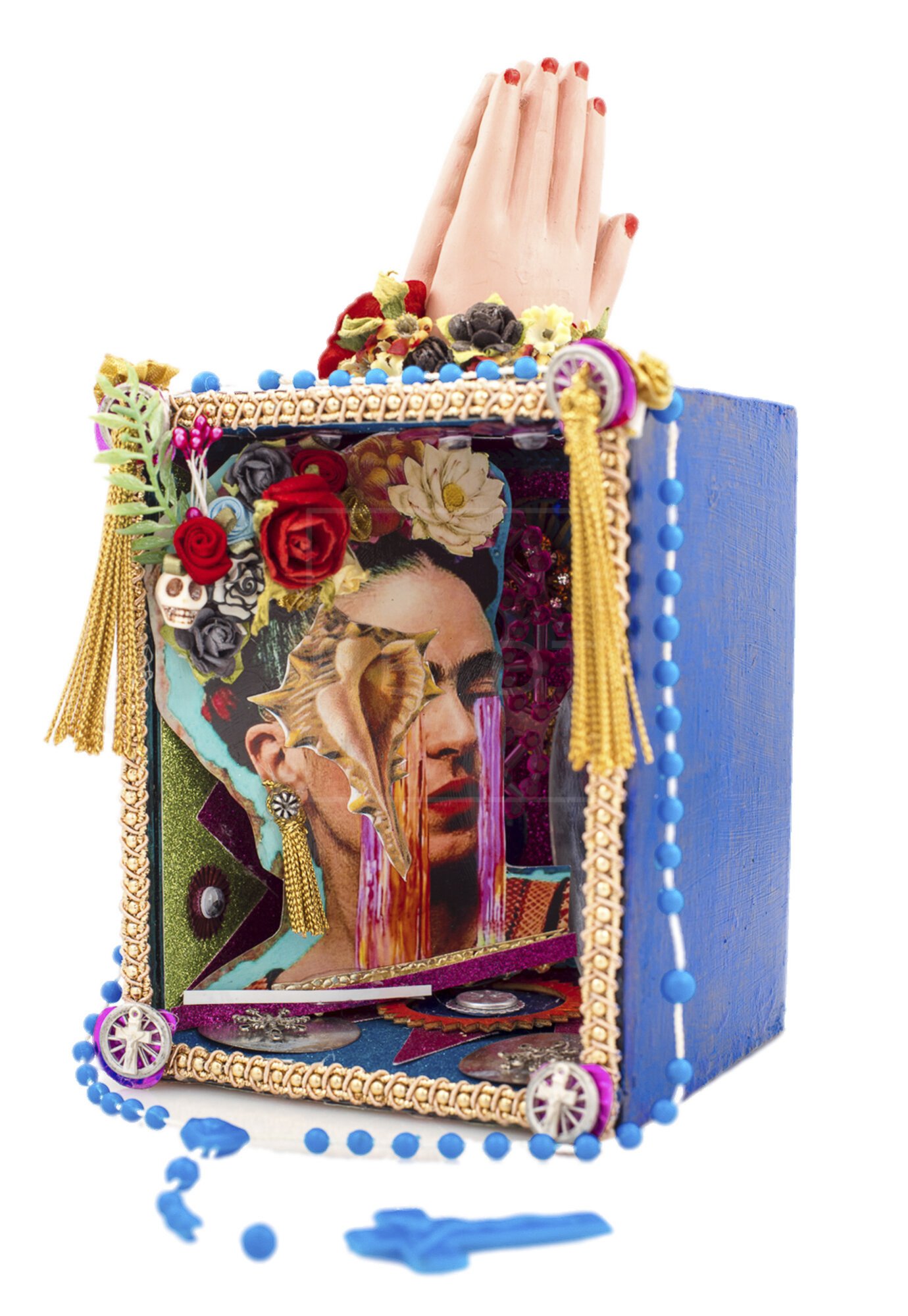
Artificial Stage | HEYDT | 2020 | Mixed Media Diorama | 4in x 6in x 5in $8000
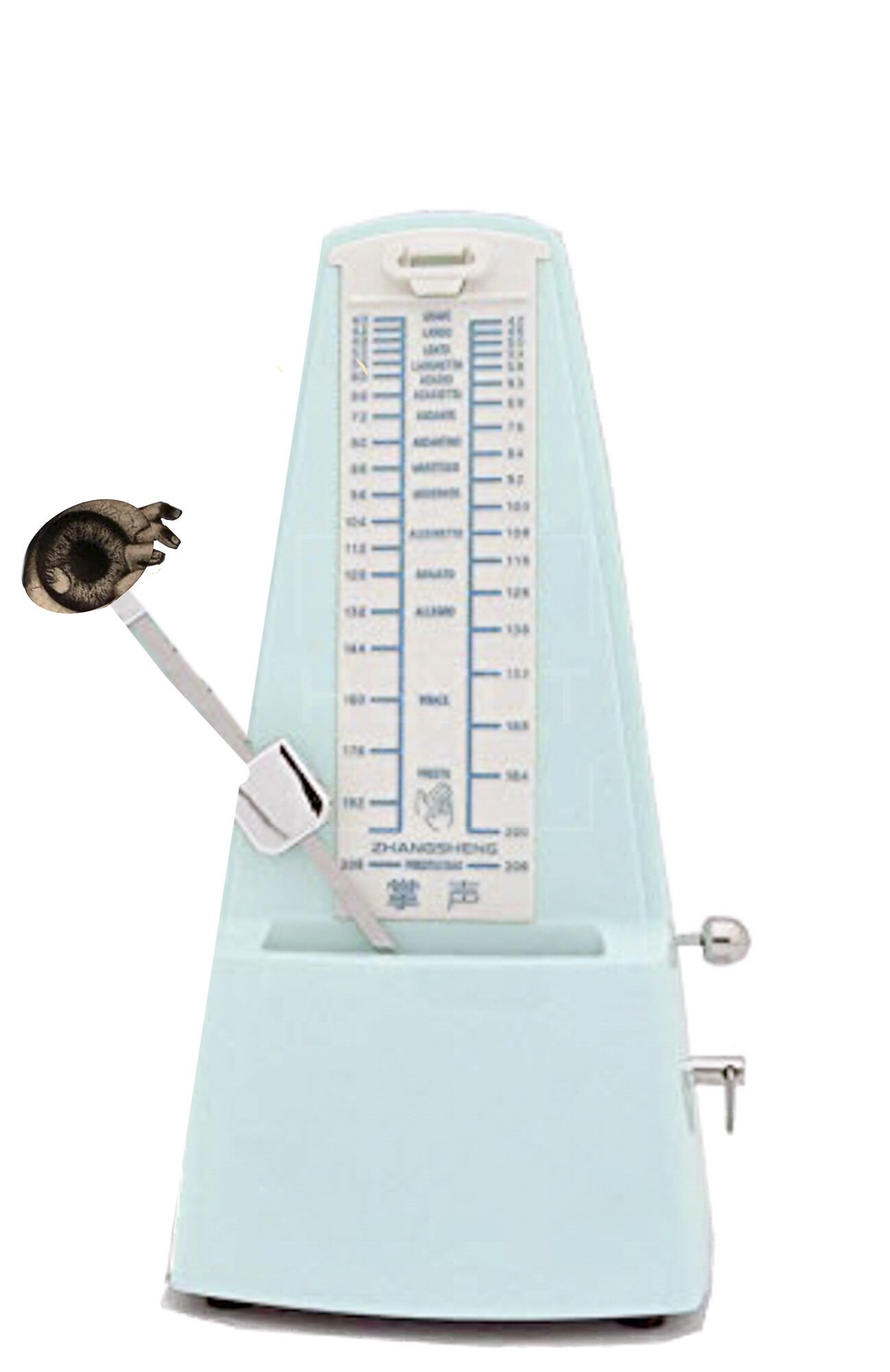
Capitalism Will Step Over Your Dead Body | HEYDT | 2020 | Found Object Intervention | 4in x 8in x 3in | $1200
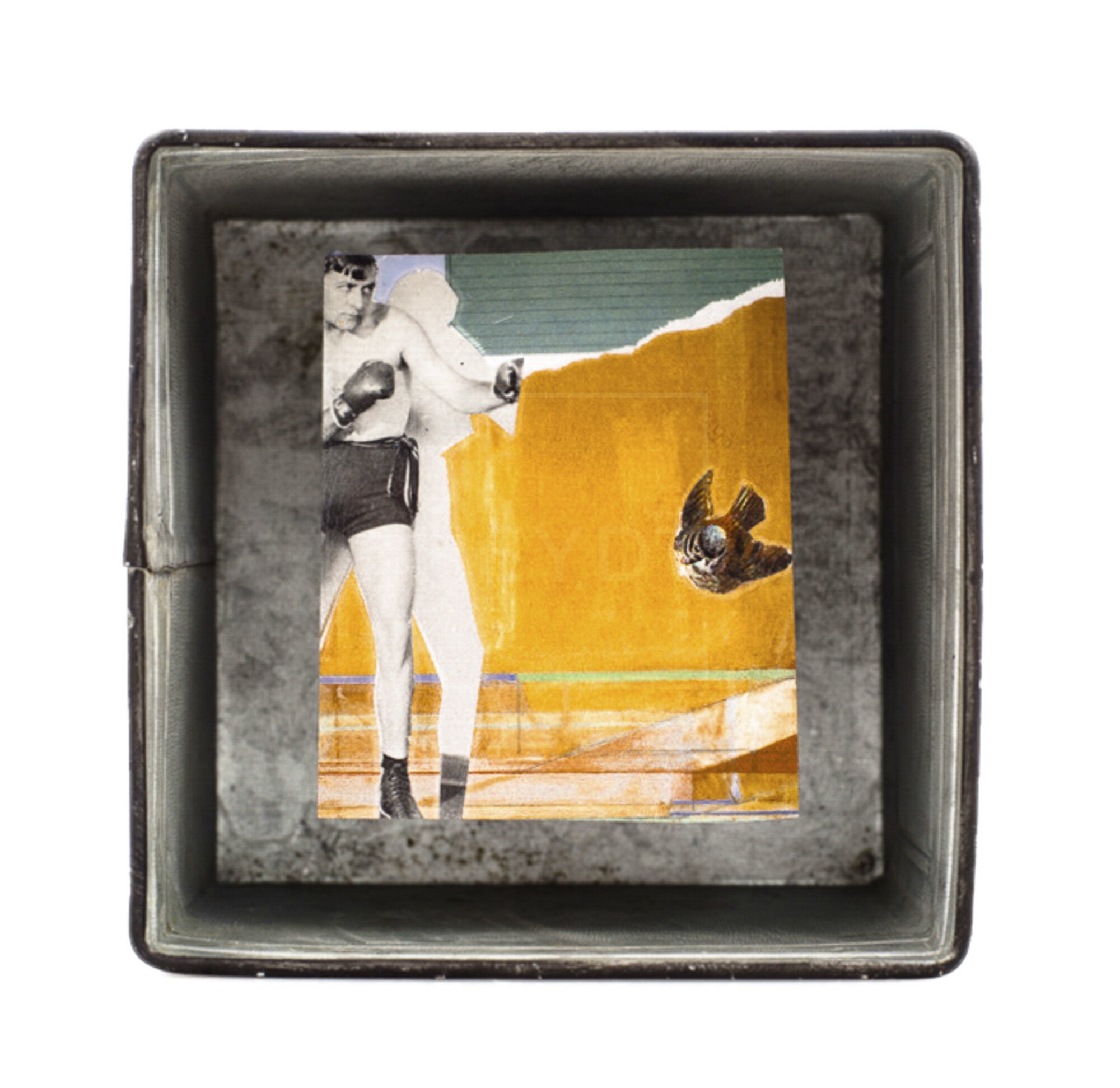
Artificial Stage | HEYDT | 2020 | Mixed Media Diorama | 4in x 4in x 4in | $1000
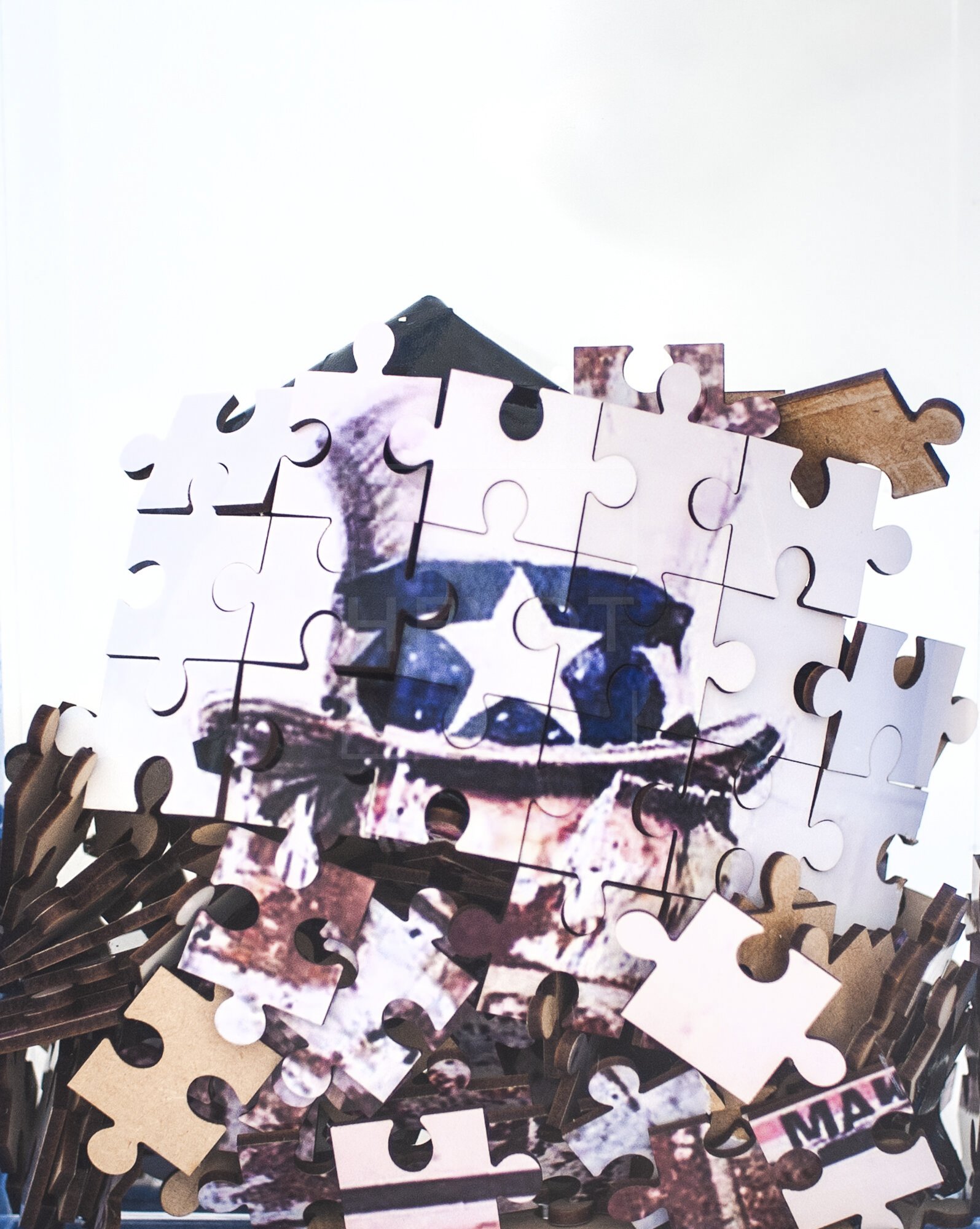
Capitalism Will Step Over Your Dead Body | HEYDT | 2020 | Found Object Intervention | 10in x 12in x 4in | $3000

Artificial Stage | HEYDT | 2020 | Mixed Media Diorama | 4in x 6in x 2in | $2000

Artificial Stage | HEYDT | 2020 | Mixed Media Diorama | 5in x 7in x 2in | $800

Artificial Stage | HEYDT | 2020 | Mixed Media Diorama | 5in x 7in x 2in | $800

Artificial Stage | HEYDT | 2020 | Mixed Media Diorama | 5in x 7in x 2in | $800
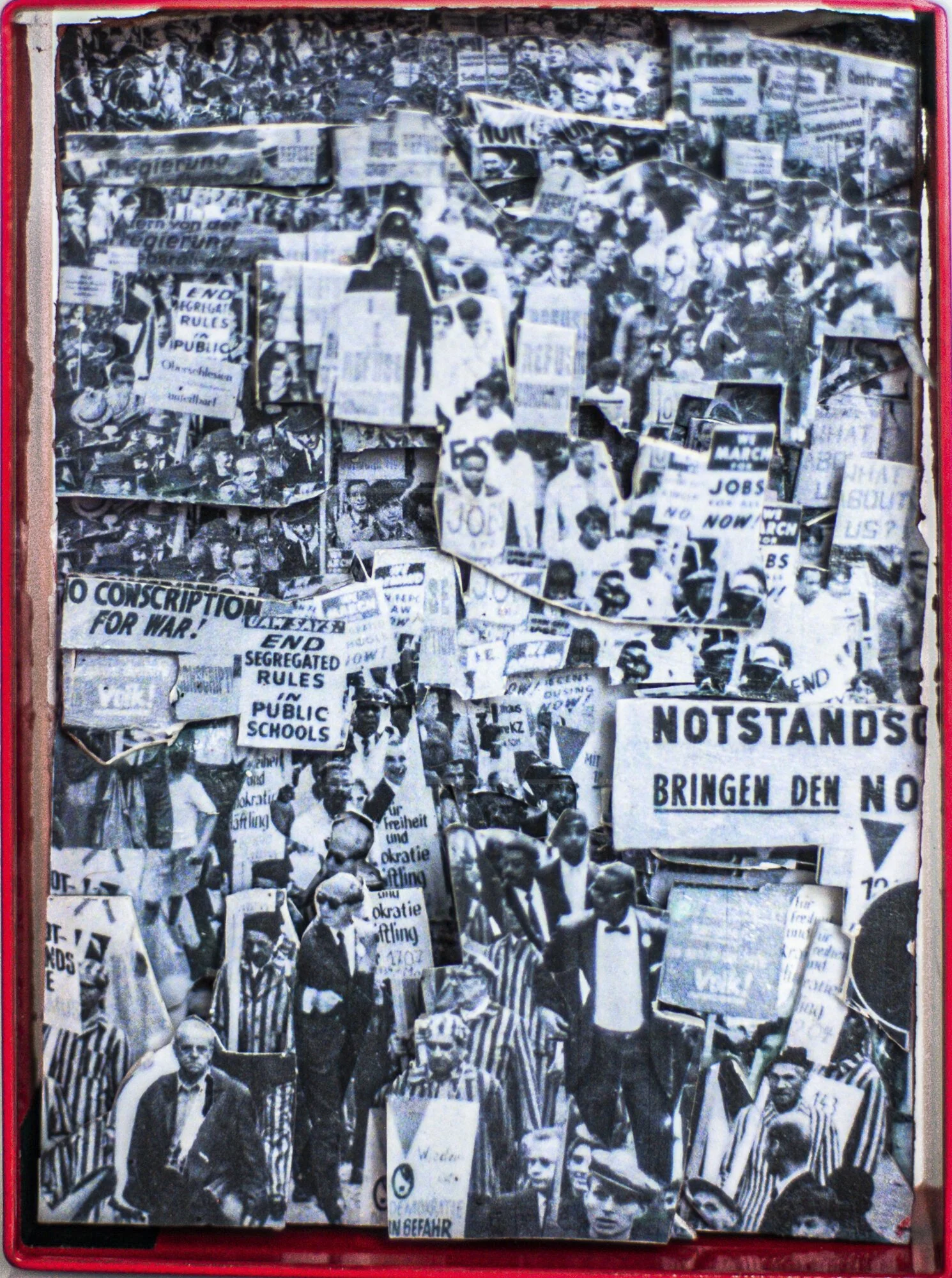
Artificial Stage | HEYDT | 2020 | Mixed Media Diorama | 5in x 7in x 2in | $800
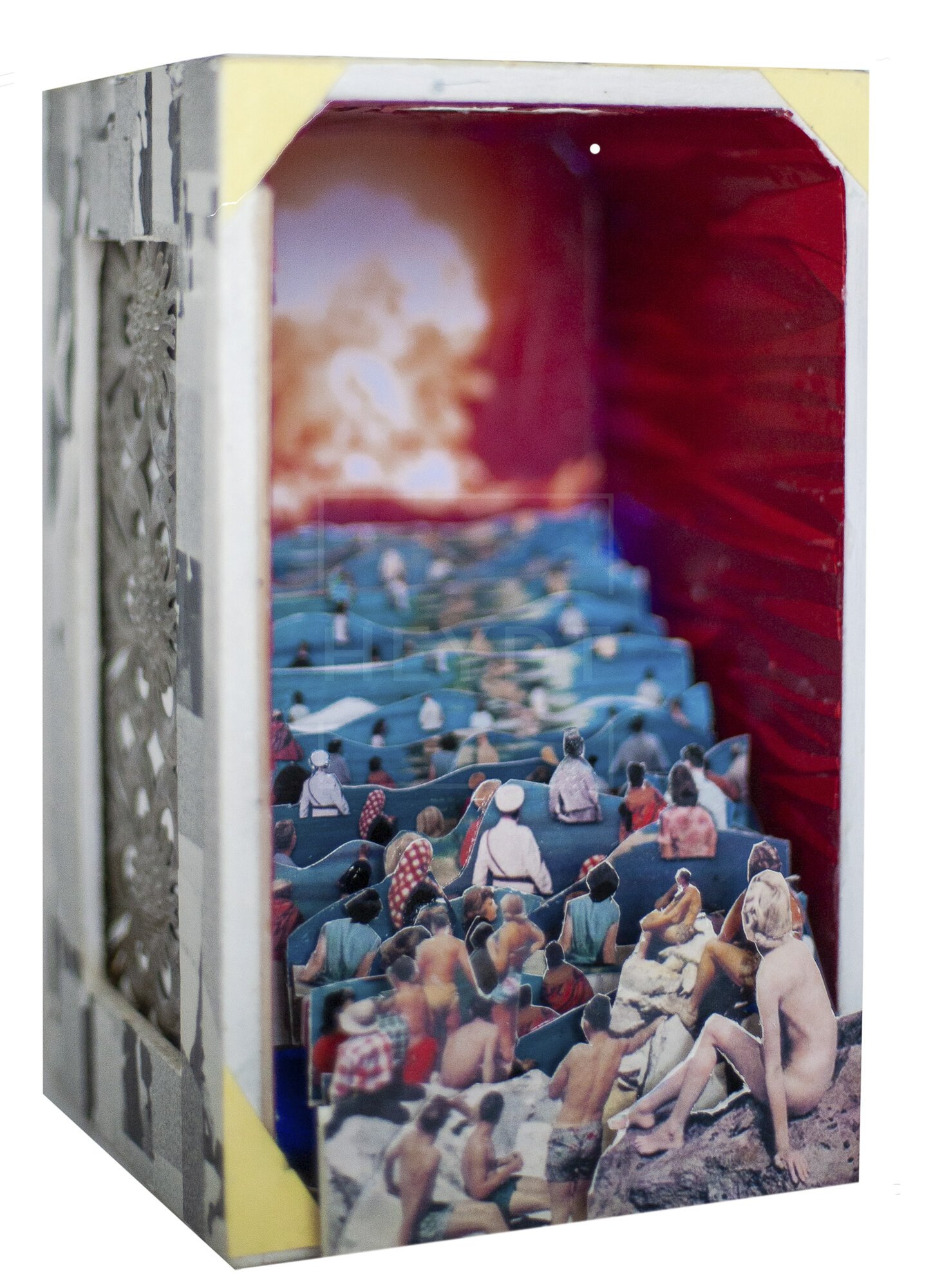
Artificial Stage | HEYDT | 2020 | Mixed Media Diorama | 6in x 12in x 5in | $2800

Artificial Stage | HEYDT | 2020 | Mixed Media Diorama | 6in x 12in x 5in | $2800

Artificial Stage | HEYDT | 2020 | Mixed Media Diorama | 6in x 12in x 5in | $2800
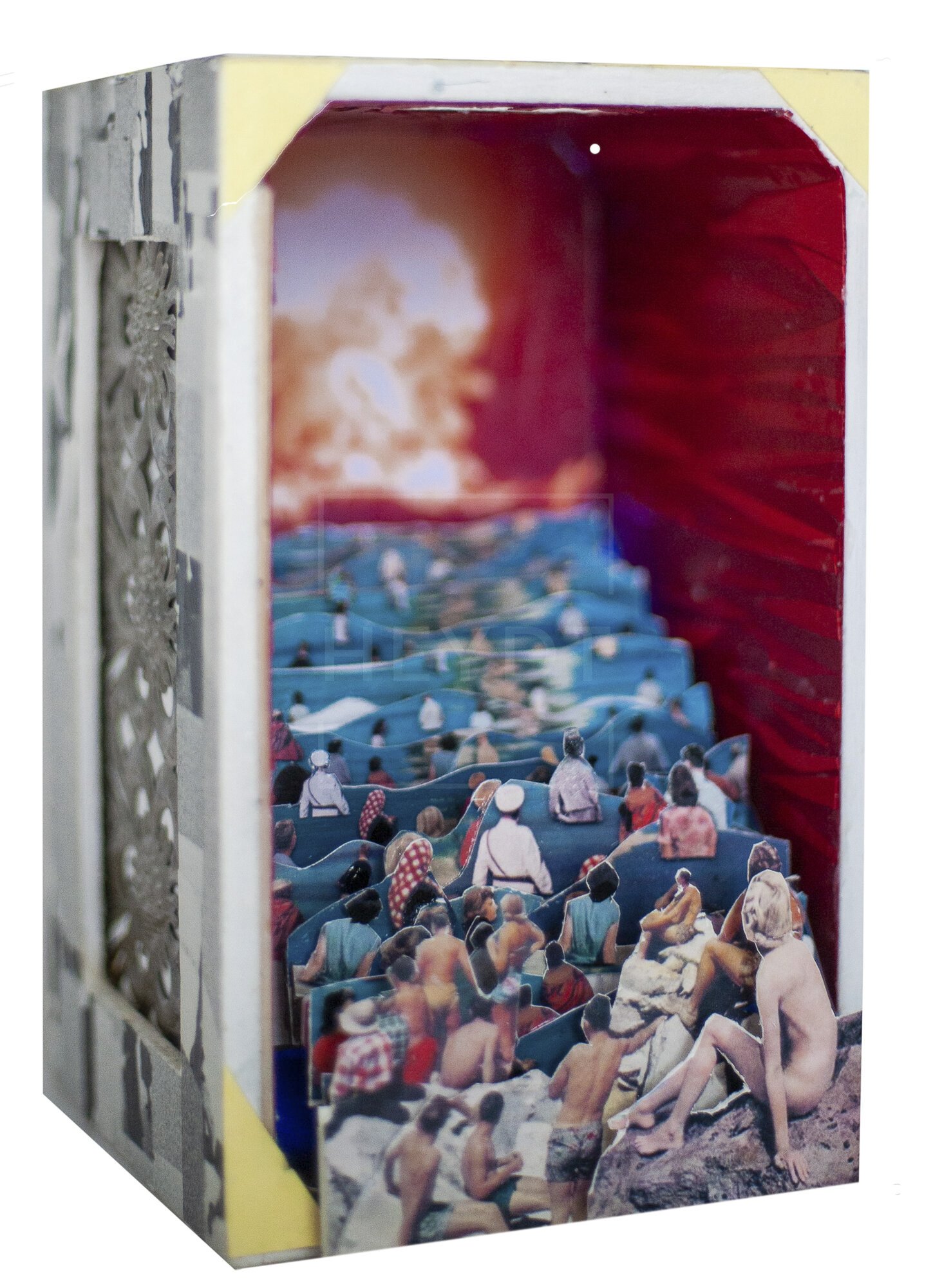
Artificial Stage | HEYDT | 2020 | Mixed Media Diorama | 6in x 12in x 5in | $2800

Artificial Stage | HEYDT | 2020 | Mixed Media Diorama | 6in x 12in x 5in | $2800

Artificial Stage | HEYDT | 2020 | Mixed Media Diorama | 6in x 12in x 5in | $2800

Artificial Stage | HEYDT | 2020 | Mixed Media Diorama | 6in x 12in x 5in | $2800
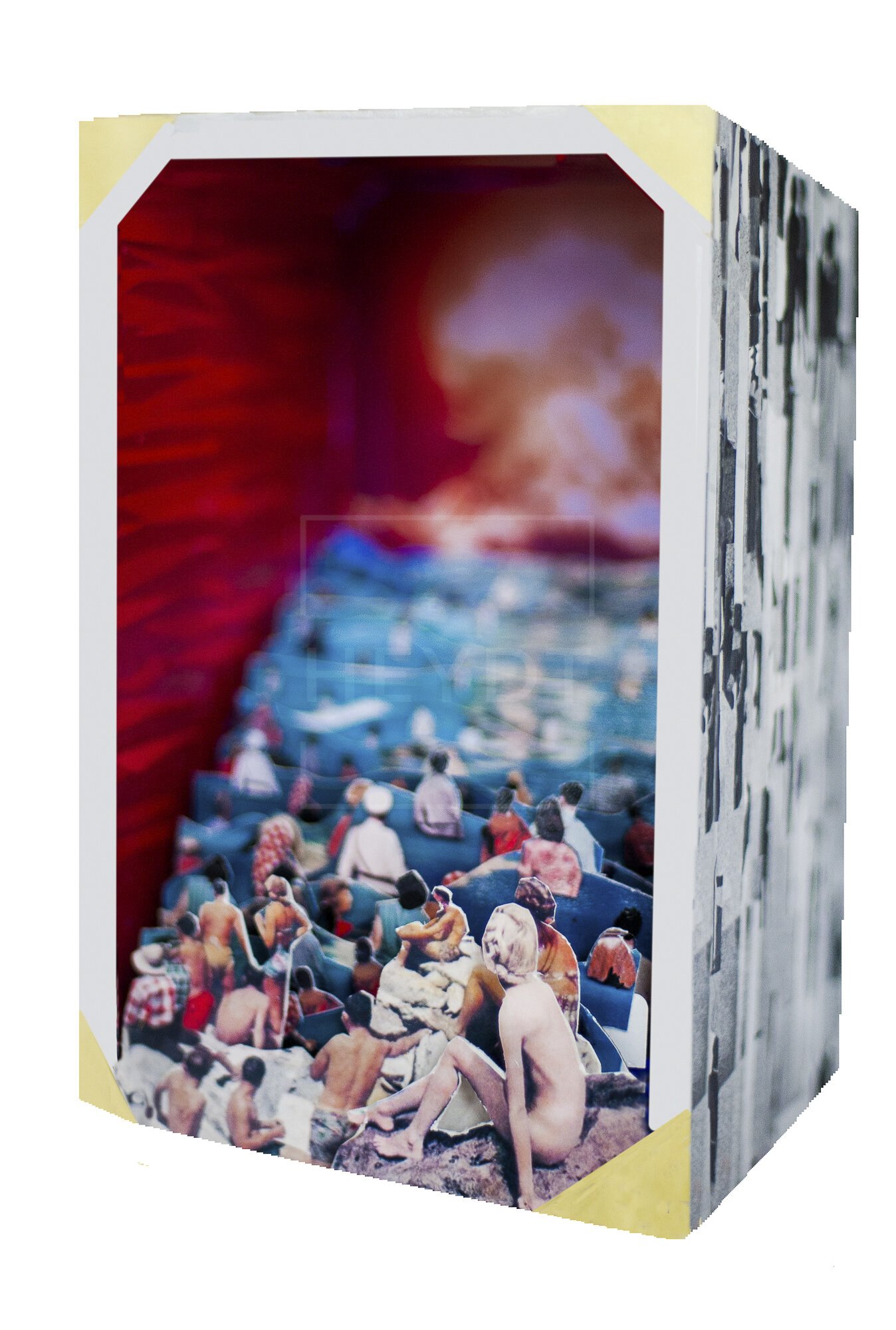
Artificial Stage | HEYDT | 2020 | Mixed Media Diorama | 6in x 12in x 5in | $2800

Artificial Stage | HEYDT | 2020 | Mixed Media Diorama | 6in x 8in | $2000

Artificial Stage | HEYDT | 2020 | Mixed Media Diorama | 5in x 8in x 4in | $2000

Capitalism Will Step Over Your Dead Body | HEYDT | 2020 | Sculpture | 25in x 50in x 2in |$6000

Artificial Stage | HEYDT | 2020 | Mixed Media Diorama | 2in x 3in x 1in | $900

Artificial Stage | HEYDT | 2020 | Mixed Media Diorama | 2in x 3in x 1in | $900

Artificial Stage | HEYDT | 2020 | Mixed Media Diorama | 2in x 3in x 1in | $900

Artificial Stage | HEYDT | 2020 | Mixed Media Diorama | 2in x 3in x 1in | $900

Artificial Stage | HEYDT | 2020 | Mixed Media Diorama | 2in x 3in x 1in | $900

Artificial Stage | HEYDT | 2020 | Mixed Media Diorama | 2in x 3in x 1in | $900
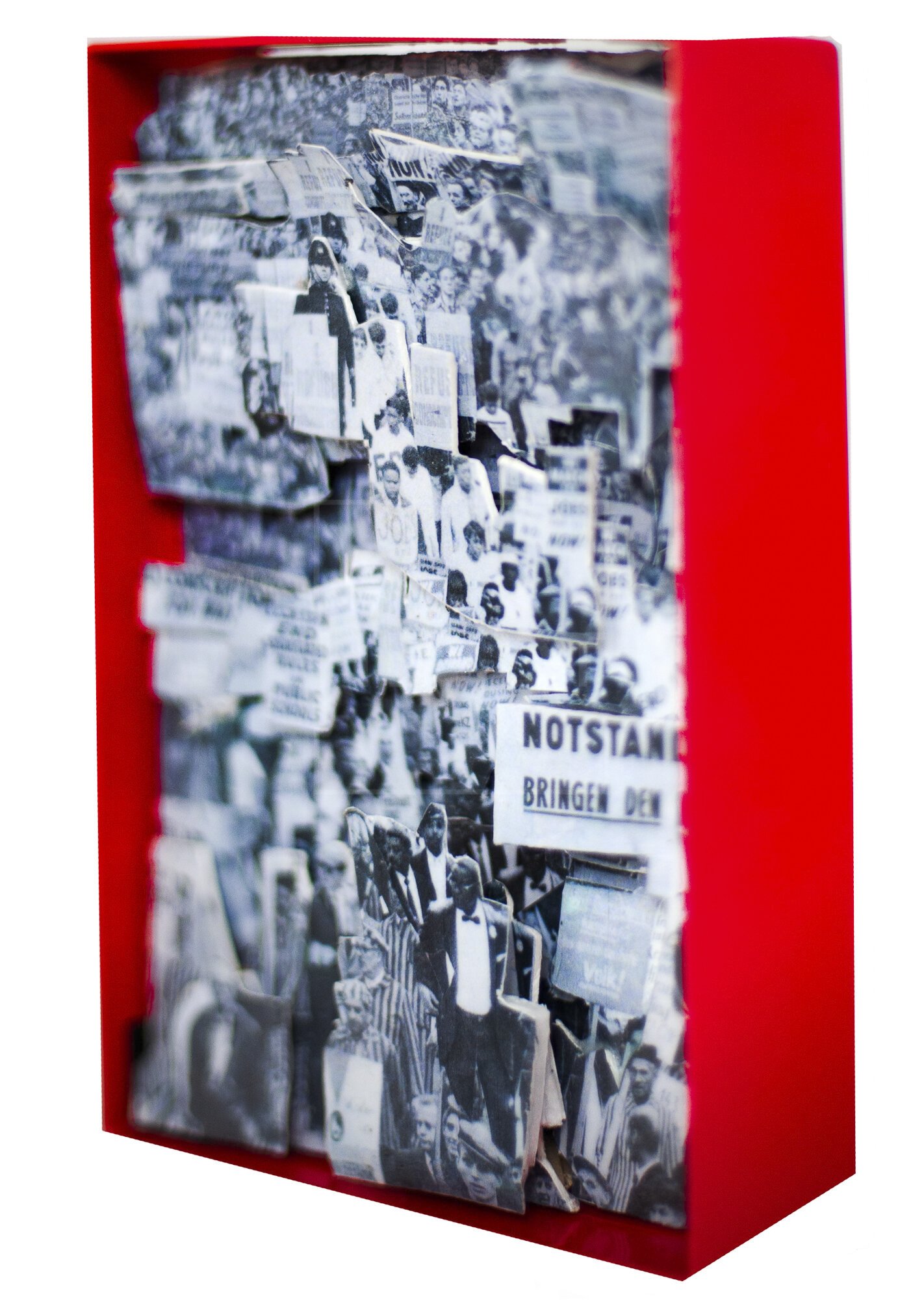
Capitalism Will Step Over Your Dead Body | Built out Free Standing Collage | 6in x 8in x 1in | $800
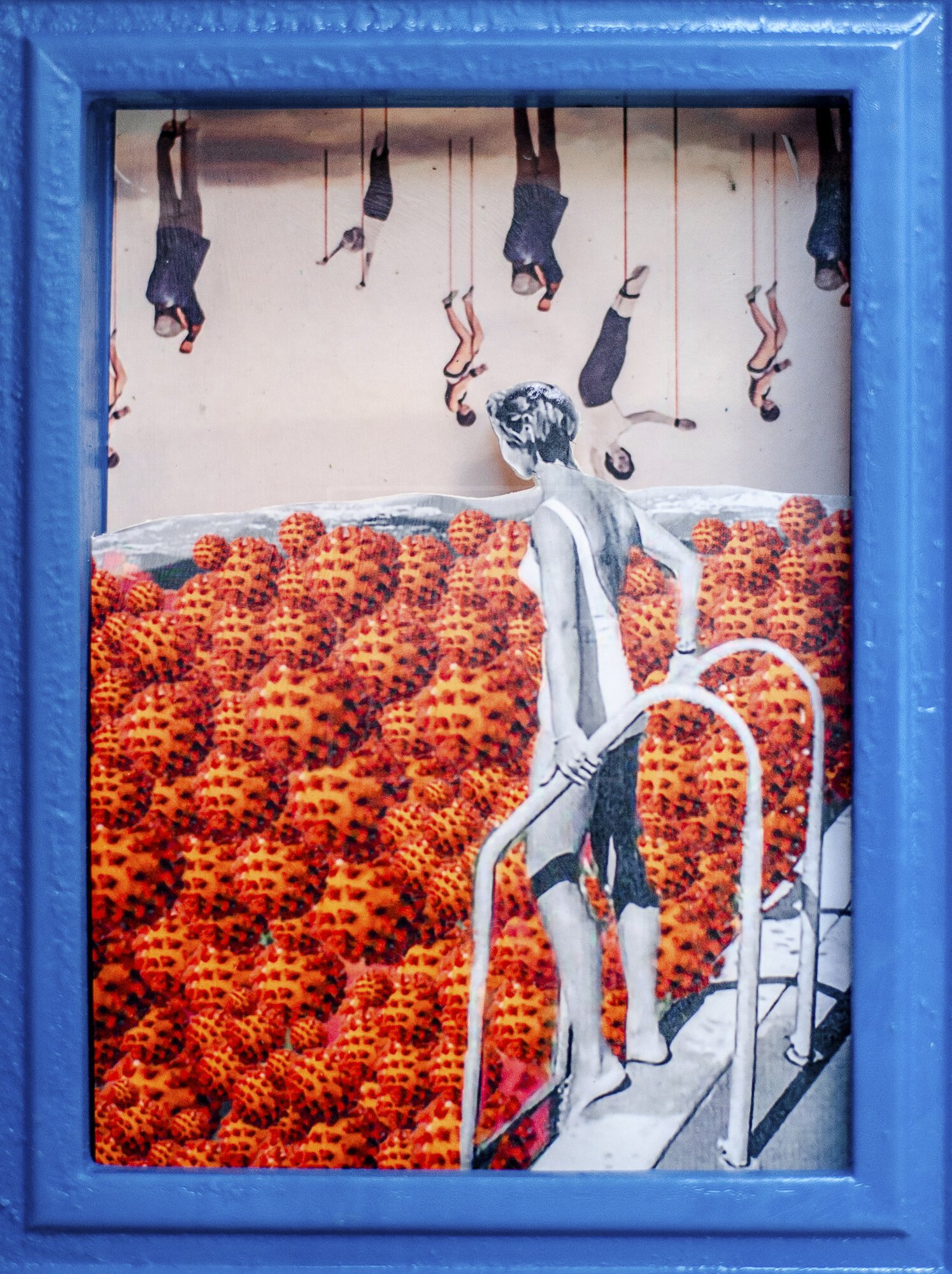
Artificial Stage | HEYDT | 2020 | Mixed Media Diorama | 4in x 6in x 2in | $2000
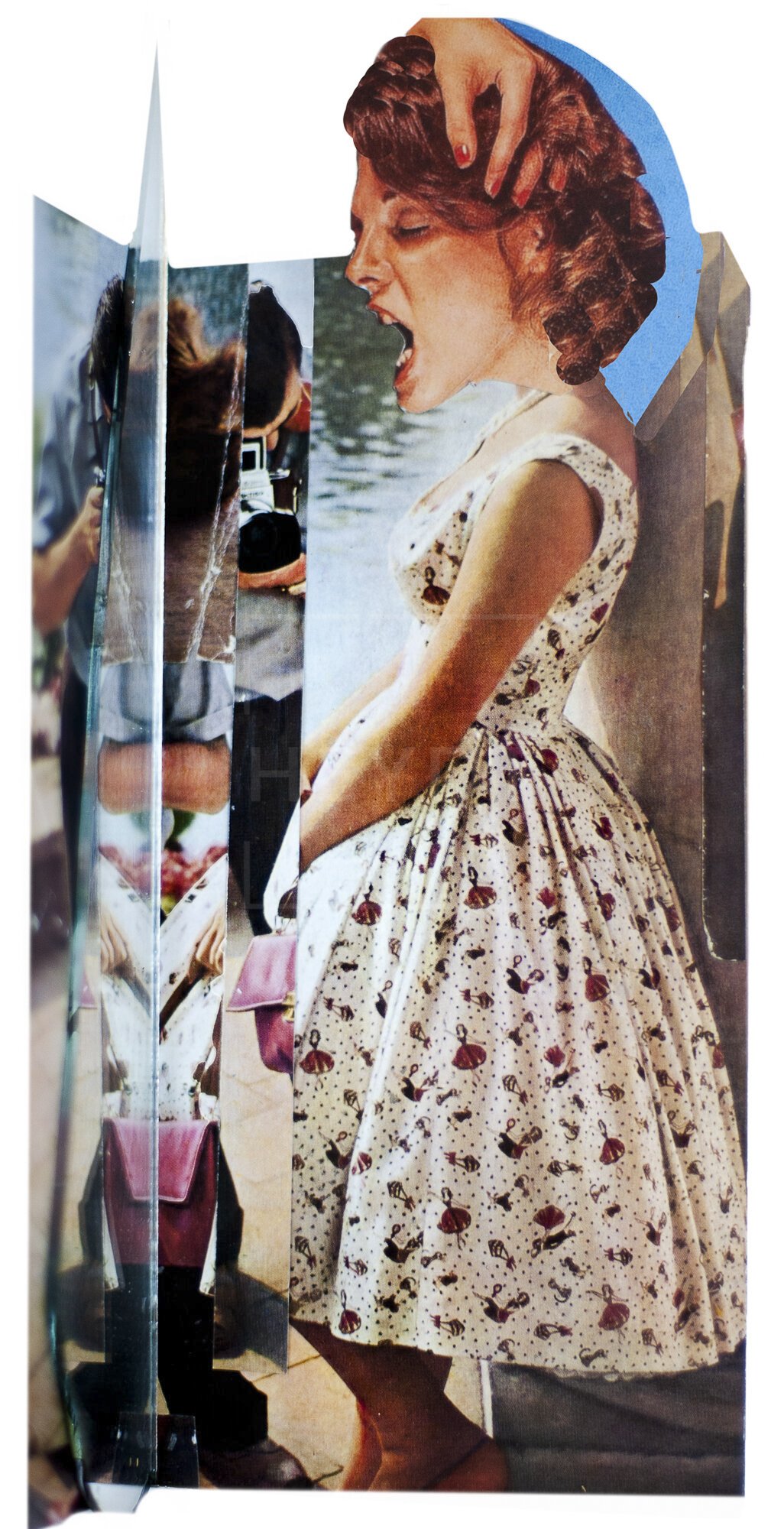
Capitalism Will Step Over Your Dead Body | HEYDT | 2020 | Sculpture | 5in x 11in x 3in | $3000
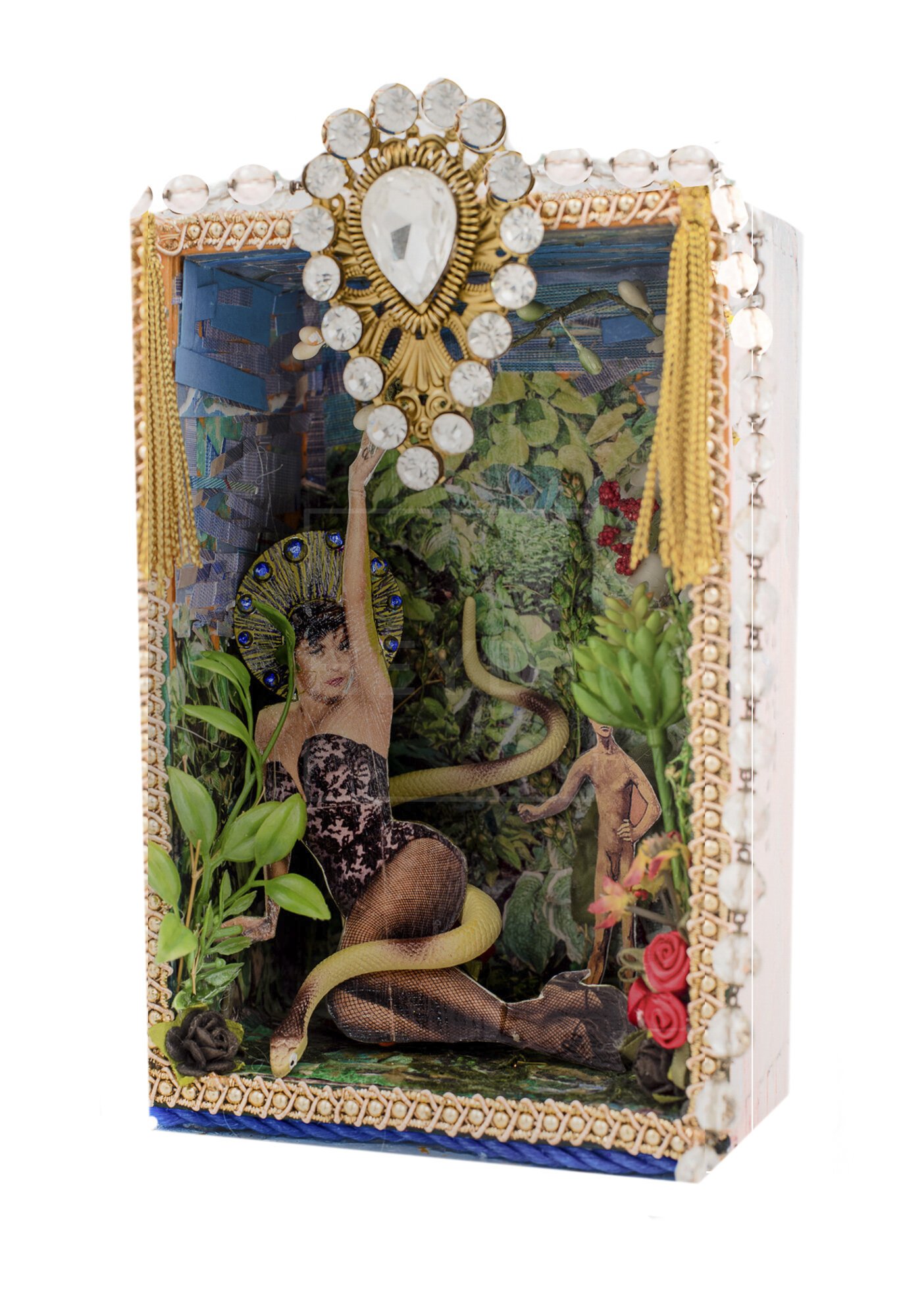
Artificial Stage | HEYDT | 2020 | Mixed Media Diorama | 5in x 8in x 5in $2000
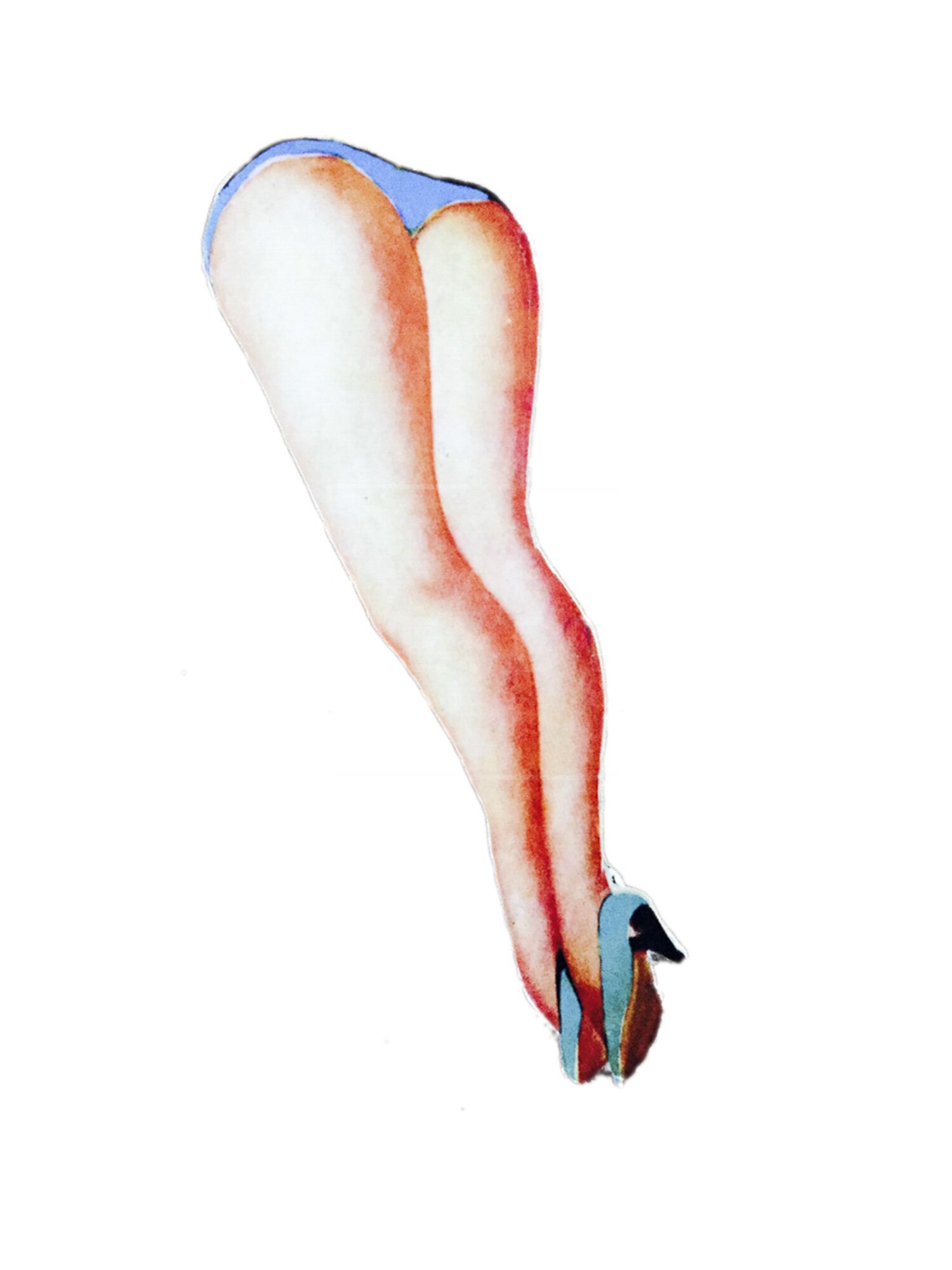
Capitalism Will Step Over Your Dead Body | HEYDT | 2020 | Found Object Intervention | 10in x 50in x 2in | $12000

Artificial Stage | HEYDT | 2020 | Mixed Media Diorama | 4in x 6in x 2in | $2000
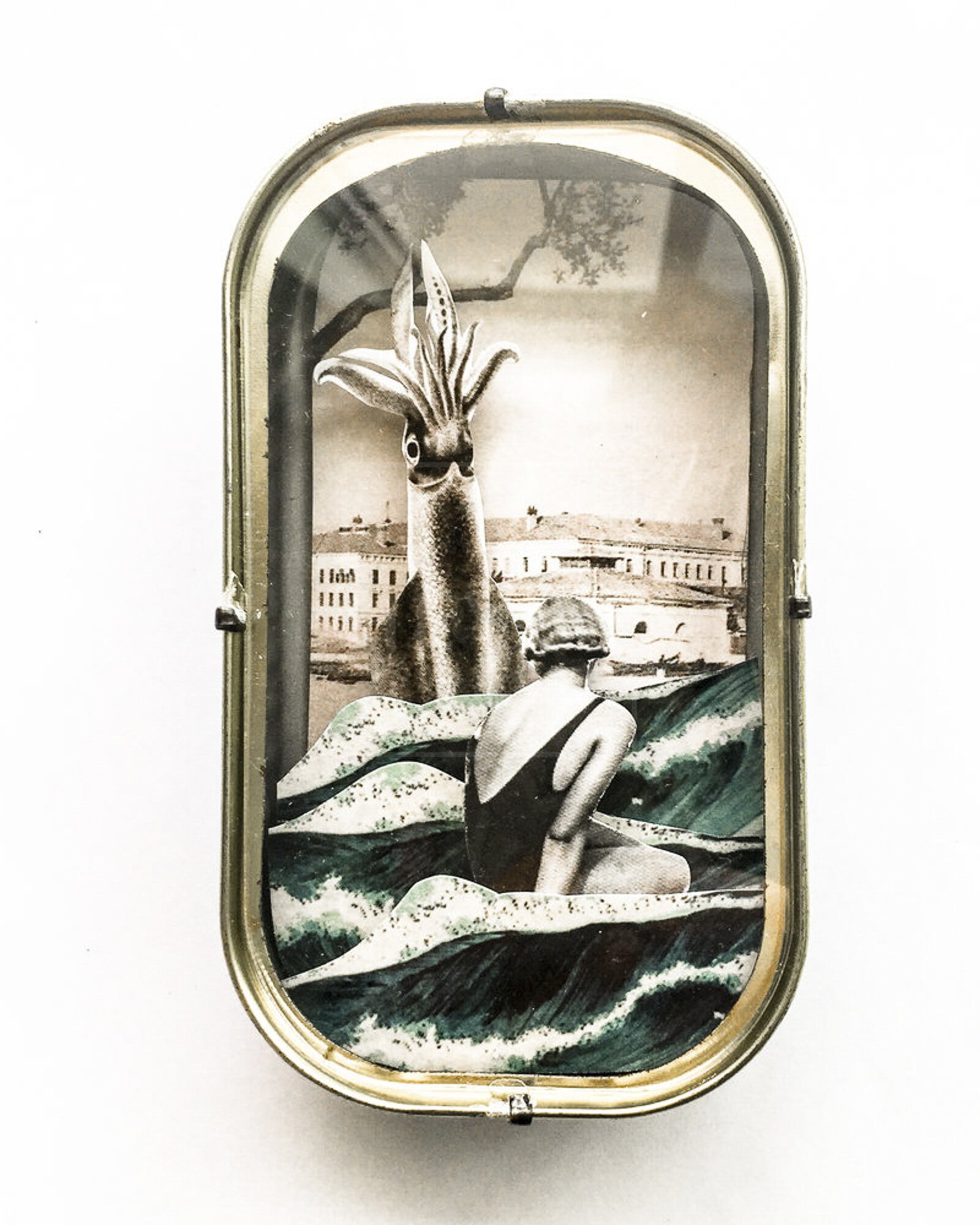
Artificial Stage | HEYDT | 2020 | Mixed Media Diorama | 2in x 3in x 1in | $900
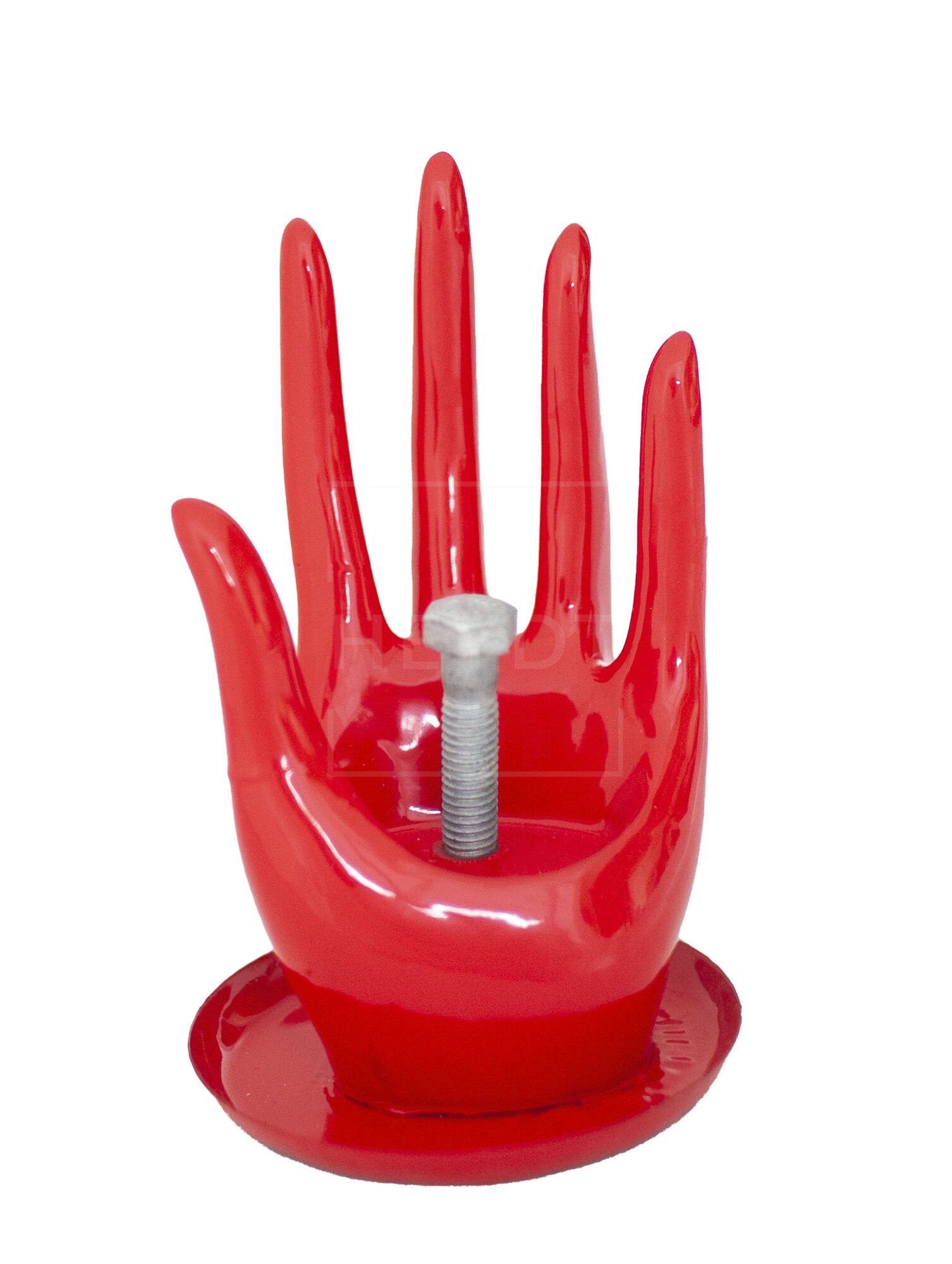
Capitalism Will Step Over Your Dead Body | HEYDT | 2020 | Sculpture | 20in x 10in x 5in | $2000 4in x 5in x 2in | $2000
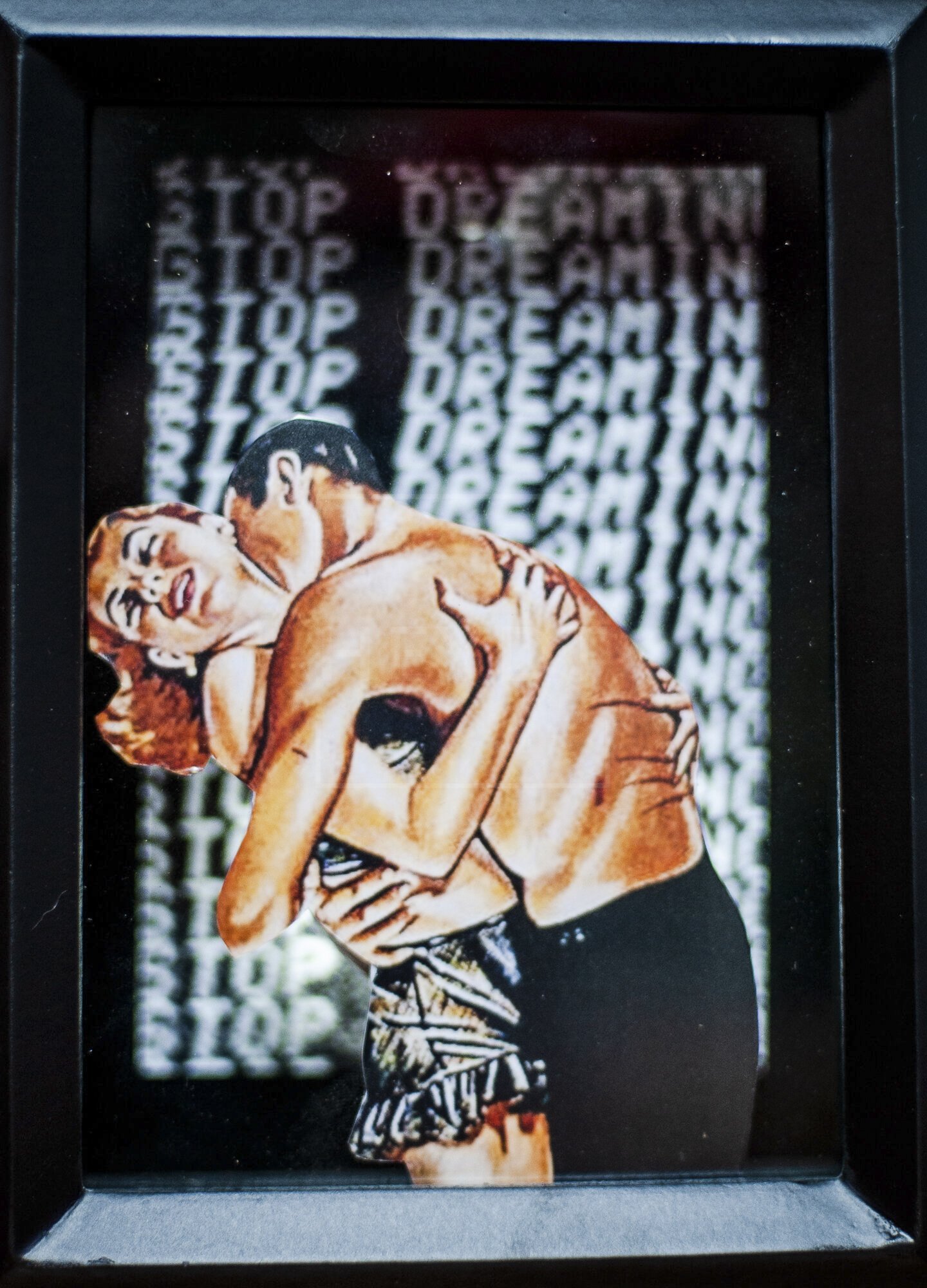
Artificial Stage | HEYDT | 2020 | Mixed Media Diorama | 4in x 6in x 2in | $2000
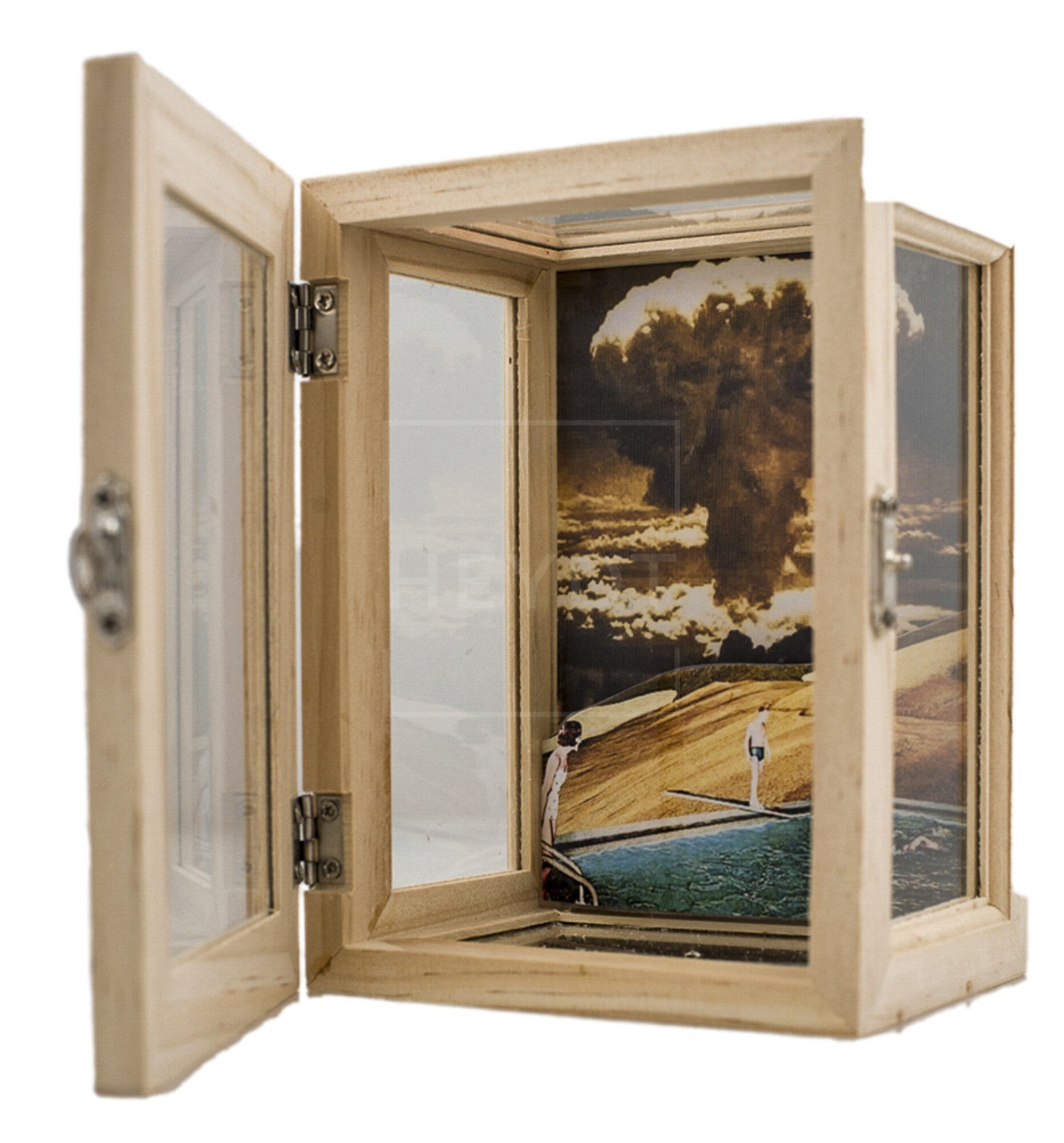
Artificial Stage | HEYDT | 2020 | Mixed Media Diorama | 4in x 6in x 5in | $2000

Artificial Stage | HEYDT | 2020 | Mixed Media Diorama | 6in x 8in x 4in | $2000

Symphysis | HEYDT | 2020 | Analog Assemblage

Artificial Stage | HEYDT | 2020 | Mixed Media Diorama | 6in x 8in x 4in | $2000
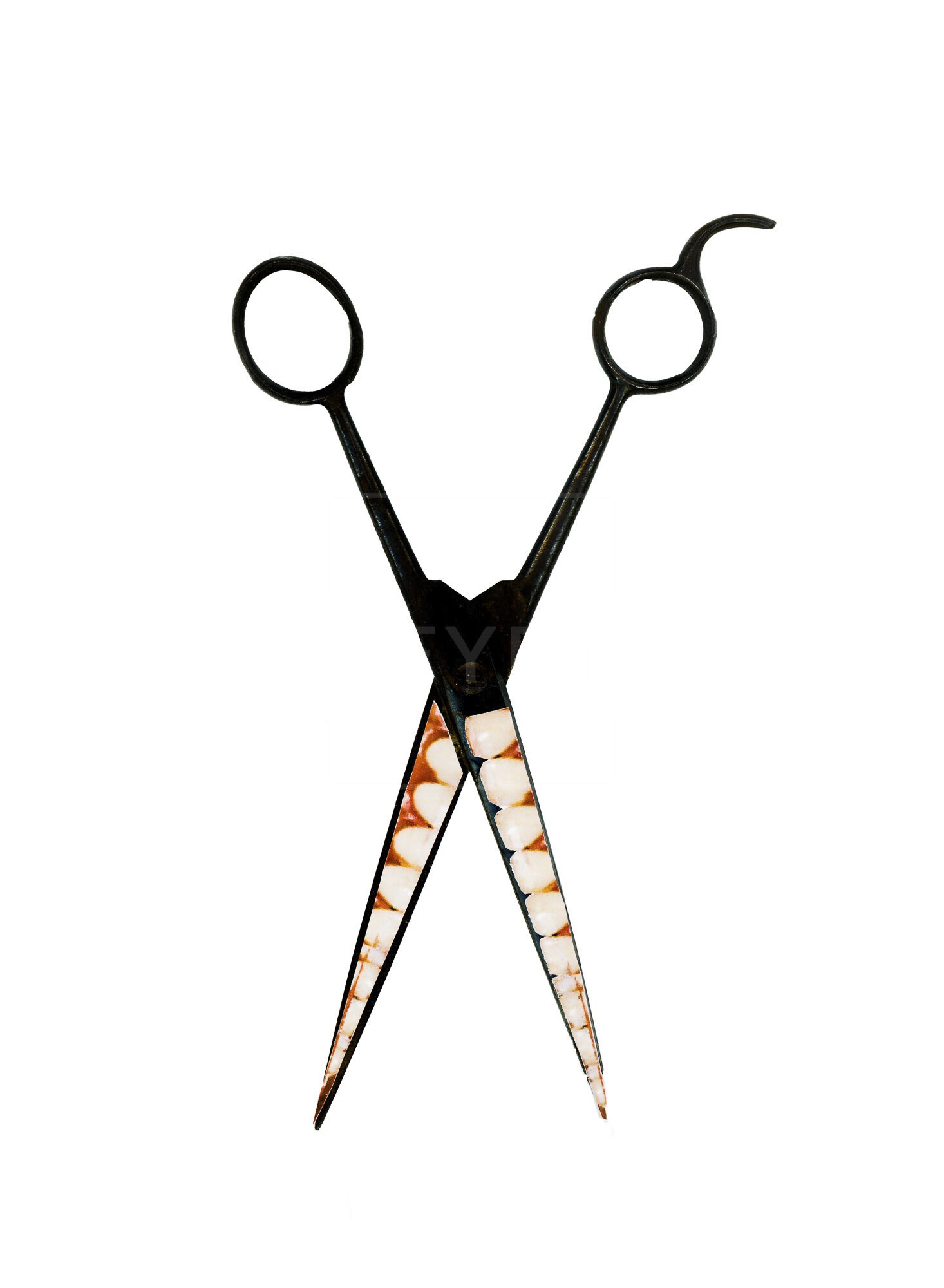
Capitalism Will Step Over Your Dead Body | HEYDT | 2020 | Found Object Intervention | 3in x 6in | $80
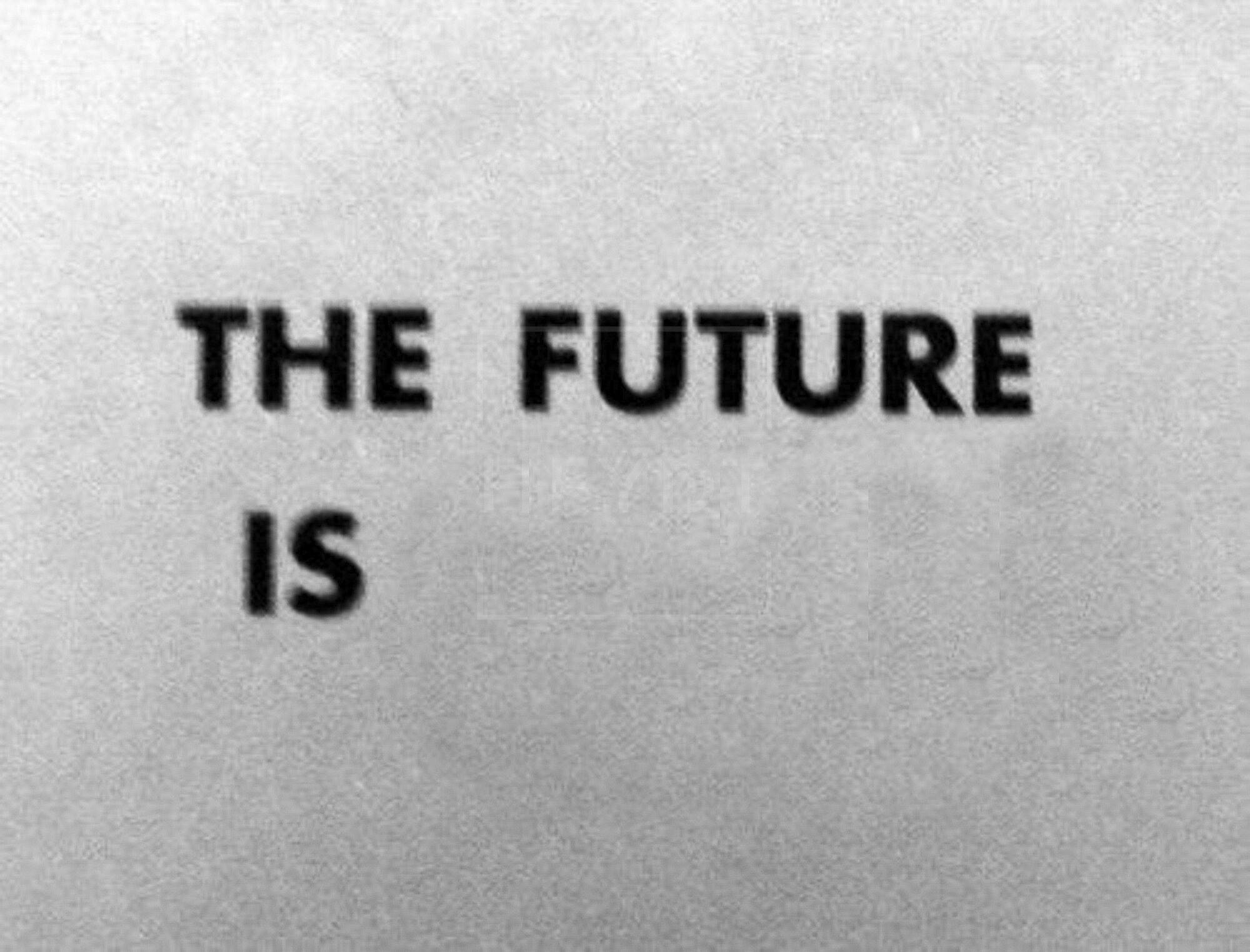
Capitalism Will Step Over Your Dead Body | HEYDT | 2020 | Painting | 20in x 15in | $2500
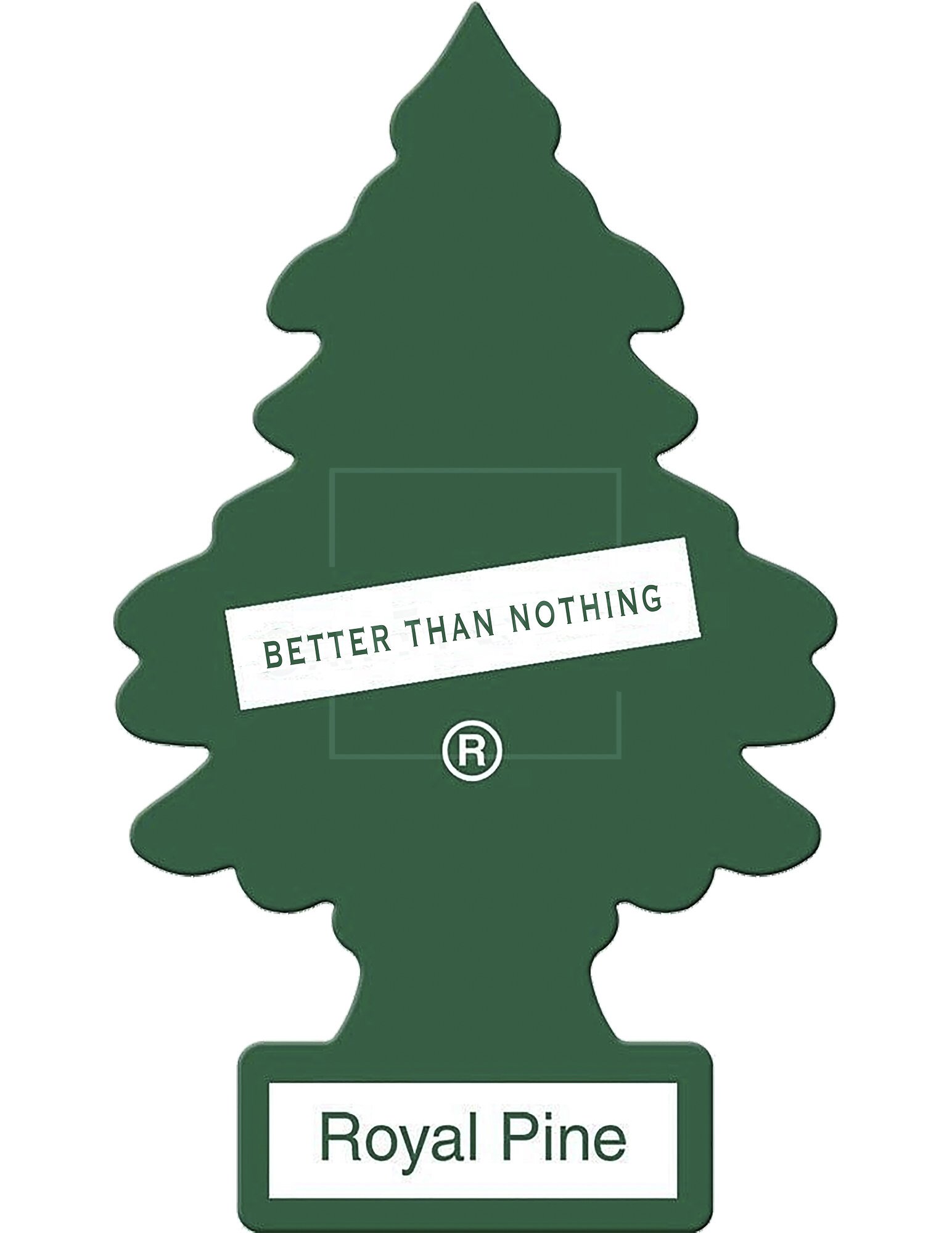
Capitalism Will Step Over Your Dead Body | HEYDT | 2020 | Sculptural Installation | 50in x 70in x 2in | $10000

Capitalism Will Step Over Your Dead Body | HEYDT | 2020 | Found Object Installation | 100in x 80in x 12in | $15000
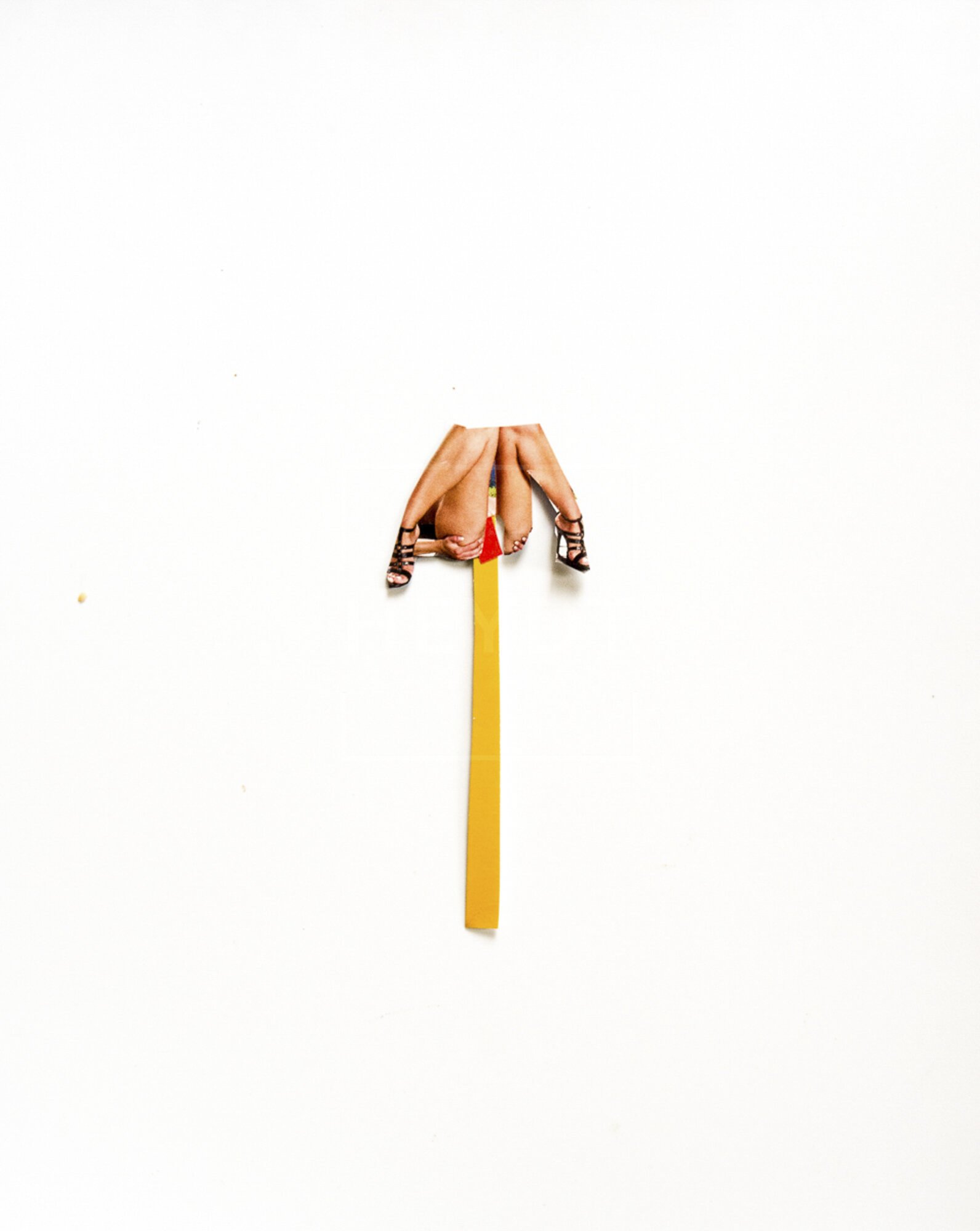
Capitalism Will Step Over Your Dead Body | HEYDT | 2020 | Scultpural Installation | 8in x 21in x 2in | $3000

Artificial Stage | HEYDT | 2020 | Mixed Media Diorama | 6in x 4in x 4in | $2000

Artificial Stage | HEYDT | 2020 | Mixed Media Diorama | 5in. x7in | $1200

Capitalism Will Step Over Your Dead Body | HEYDT | 2020 | Acrylic Painting | 50in x 36in | $8840
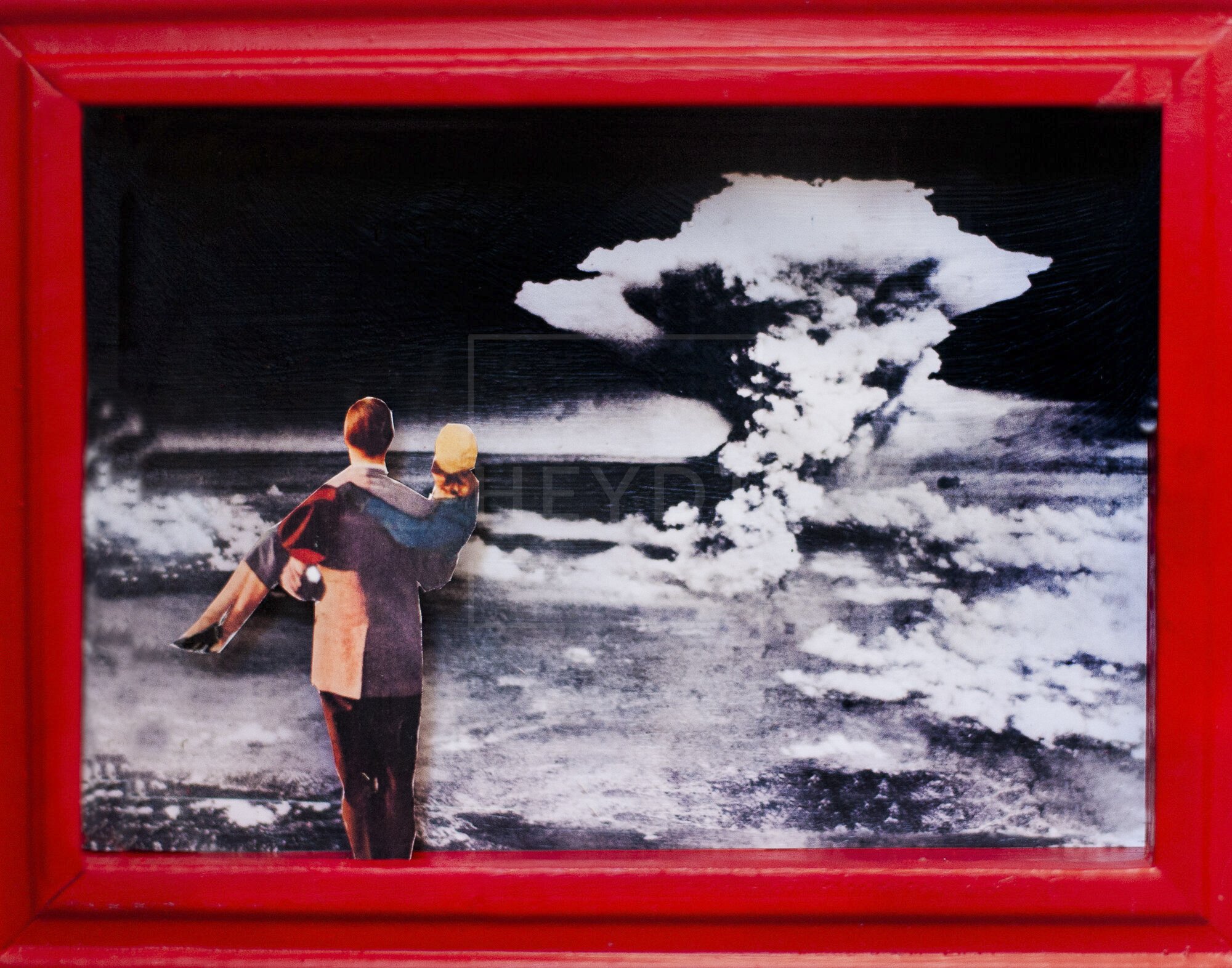
Artificial Stage | HEYDT | 2020 | Mixed Media Diorama | 6in x 8in | $2000

Artificial Stage | HEYDT | 2020 | Mixed Media Diorama | 6in x 8in | $2000
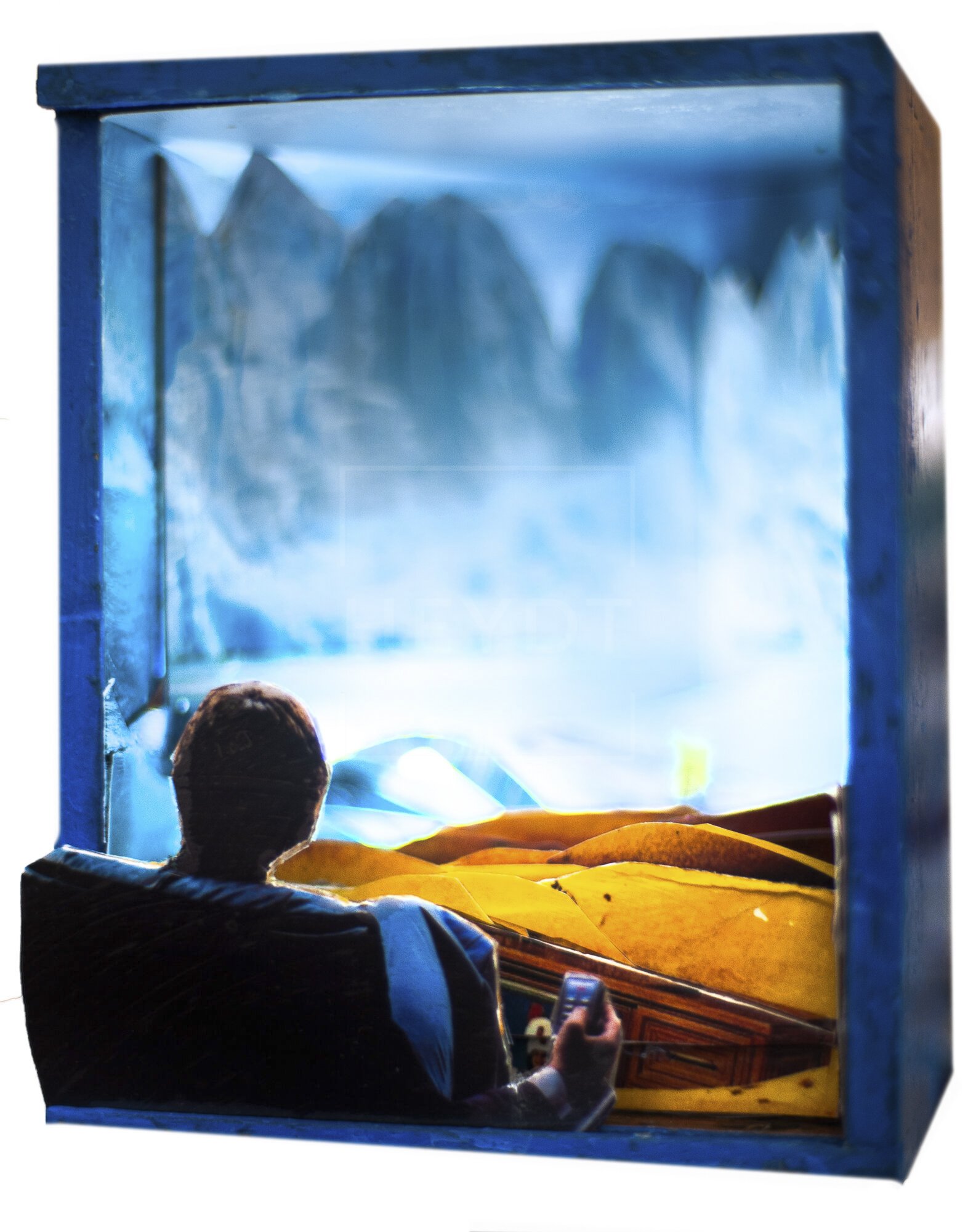
Artificial Stage | HEYDT | 2020 | Mixed Media Diorama | 4in x 5in x 5in | $1500

Artificial Stage | HEYDT | 2020 | Mixed Media Diorama | 4in x 5in x 5in | $1500

Artificial Stage | HEYDT | 2020 | Mixed Media Diorama | 4in x 5in x 5in | $1500
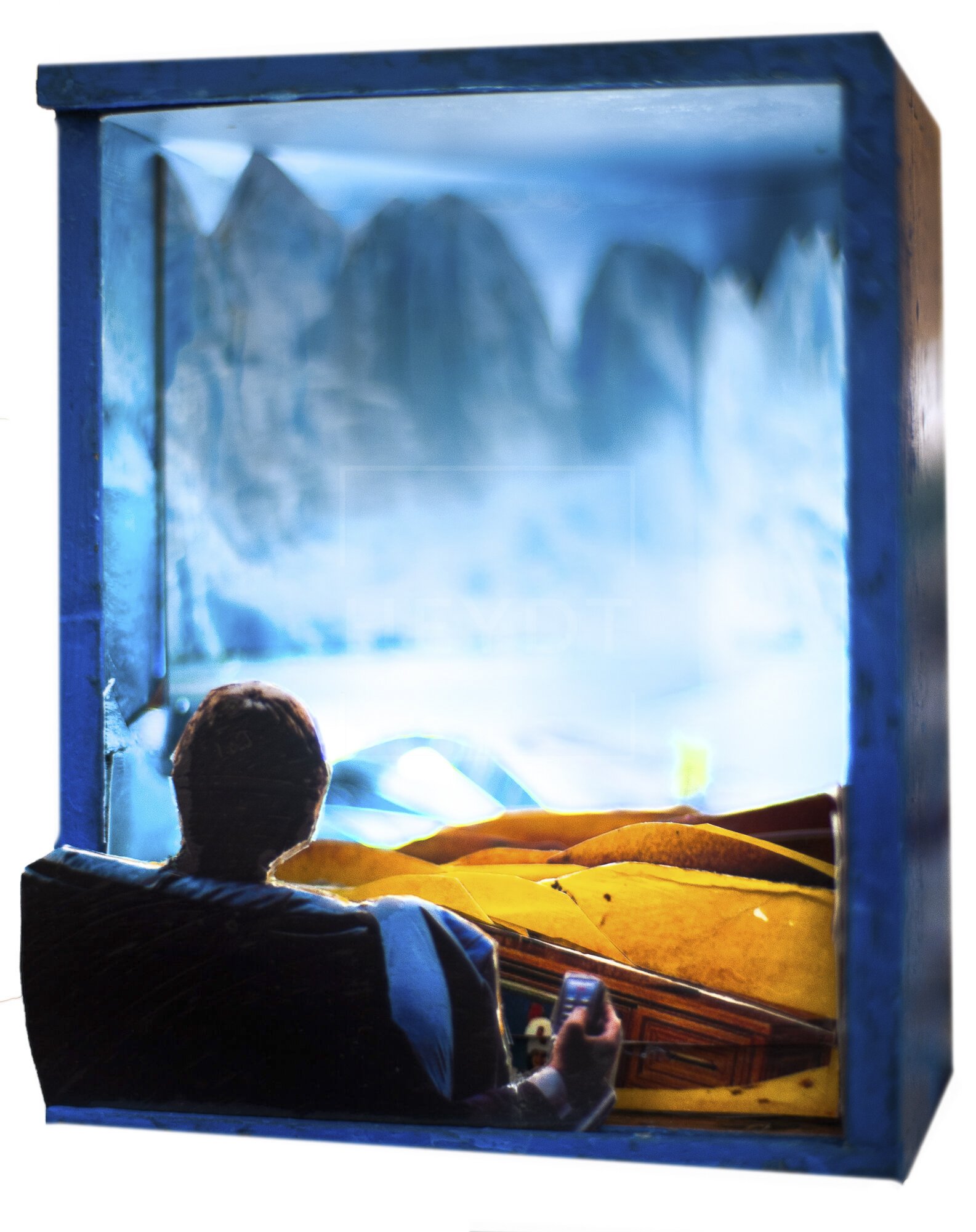
Artificial Stage | HEYDT | 2020 | Mixed Media Diorama | 4in x 5in x 5in | $1500


HEYDT creates sculptural works that navigate the boundaries between physical, emotional, and virtual worlds through shadow box dioramas, found object interventions, and virtual reality installations. Her work challenges the constructs that shape our perception of objects, environments, and identities, offering alternative frameworks for understanding. Through these three practices, HEYDT engages in a poetic recontextualization, questioning the stability of origins, essences, and fixed identities. By reframing the discarded, the mundane, and the digital, she disrupts entrenched metaphysical assumptions and opens new interpretive possibilities. Whether through the tactile intimacy of a shadow box, the reinvention of a found object, or the immersive potential of virtual reality, HEYDT’s work invites viewers to reconsider their perceptions and embrace the transformative power of reimagination.

HEYDT’s found object interventions reimagine discarded consumer goods, challenging notions of utility, value, and cultural significance. Through bricolage, she disrupts their prescribed meanings, subverting normalized contexts and exposing the instability of cultural constructs. Her playful yet critical practice invites viewers to reconsider what society deems worthless or obsolete.

HEYDT pushes the exploration of constructed realities into the digital sphere. Using emerging technologies, she crafts parallel worlds that blur the boundaries between the material and the immaterial. These immersive environments invite viewers to inhabit spaces where perception and interaction are redefined, provoking reflection on the nature of existence and the transformative potential of technology.

HEYDT constructs intimate, miniature worlds that evoke the poetic sensibilities of Joseph Cornell. Using fragments of discarded everyday items, she arranges intricate landscapes that invite introspection and spark questions about identity, memory, and value. These dioramas act as self-contained universes where the mundane transforms, and the boundaries between imagination and materiality dissolve.
